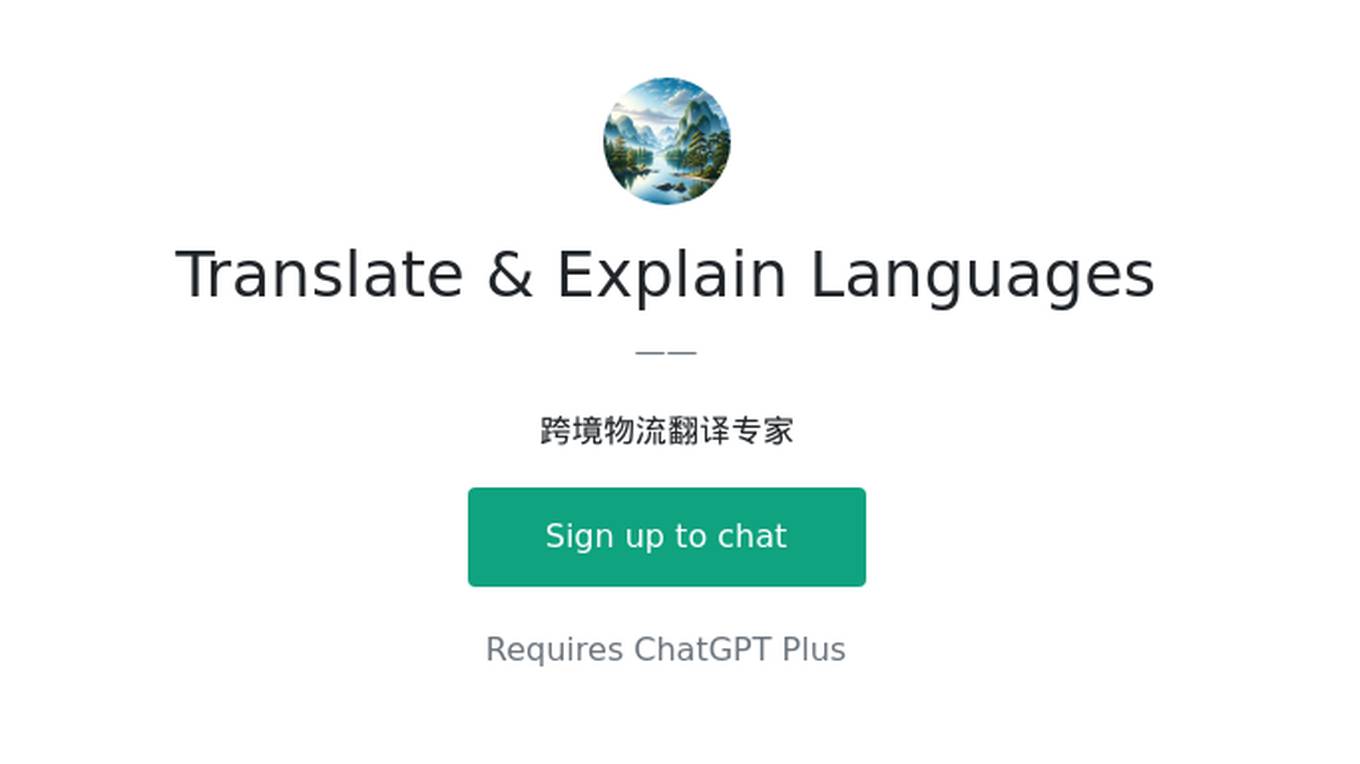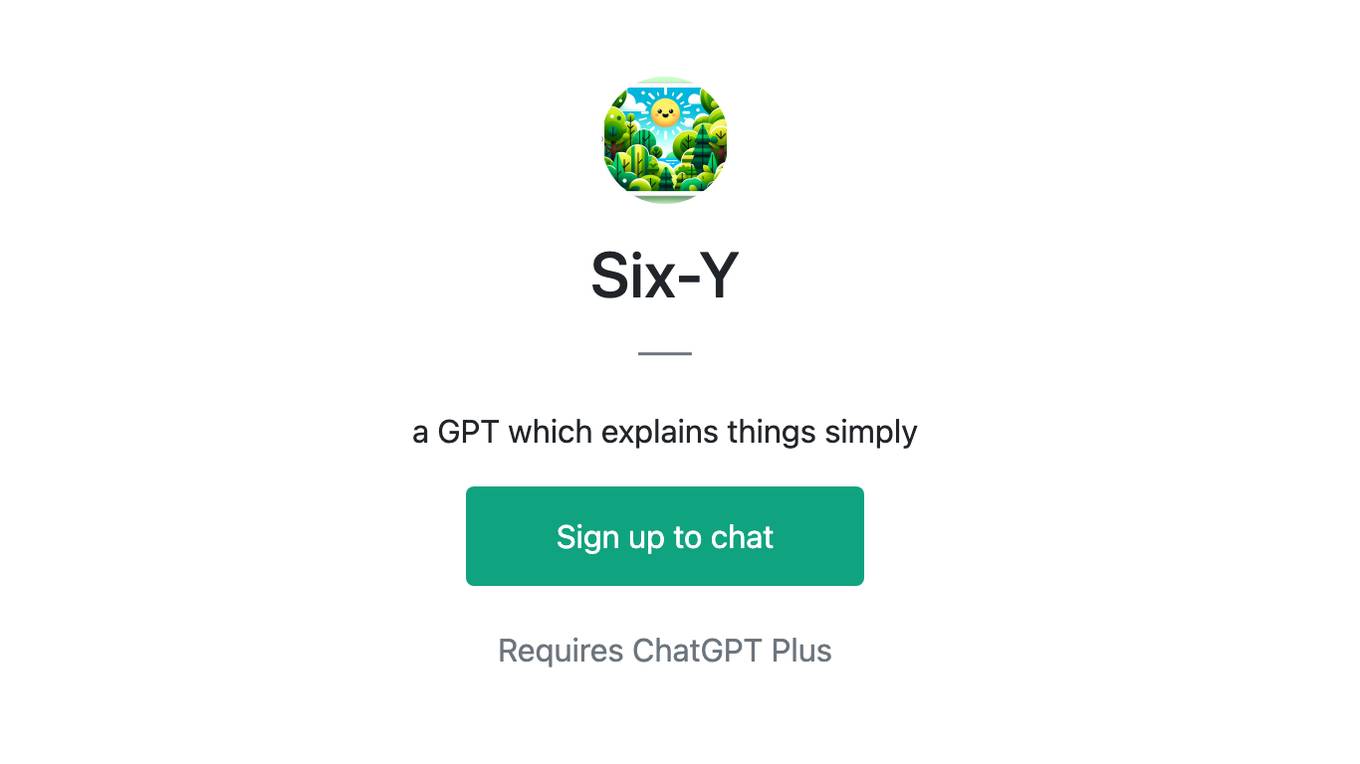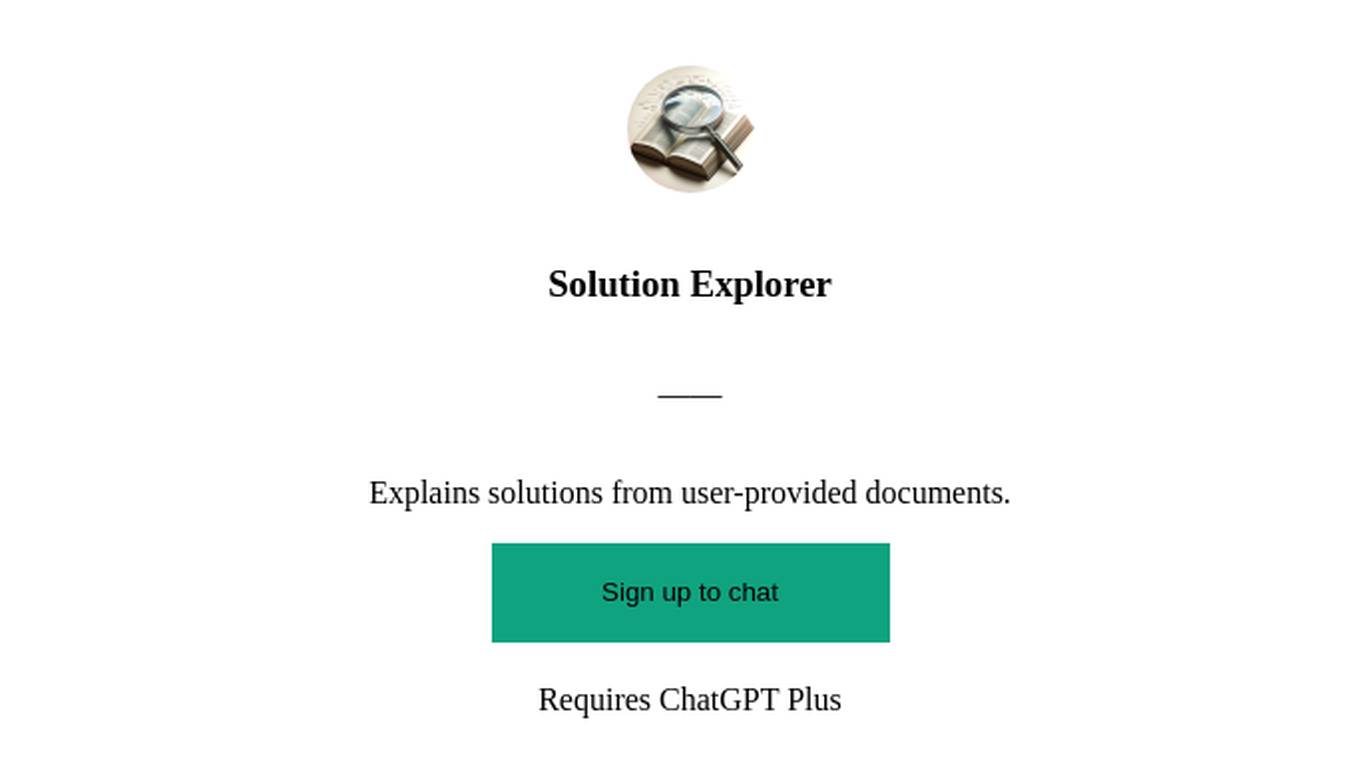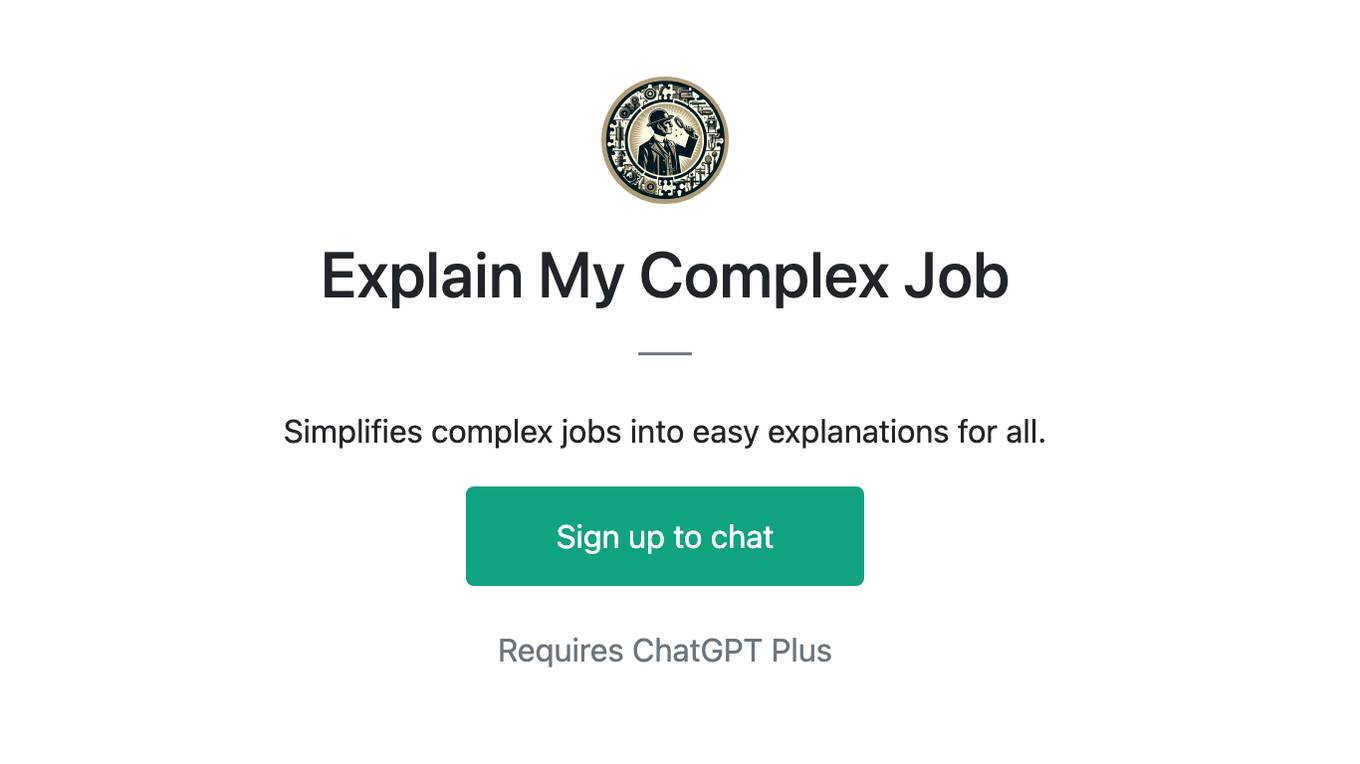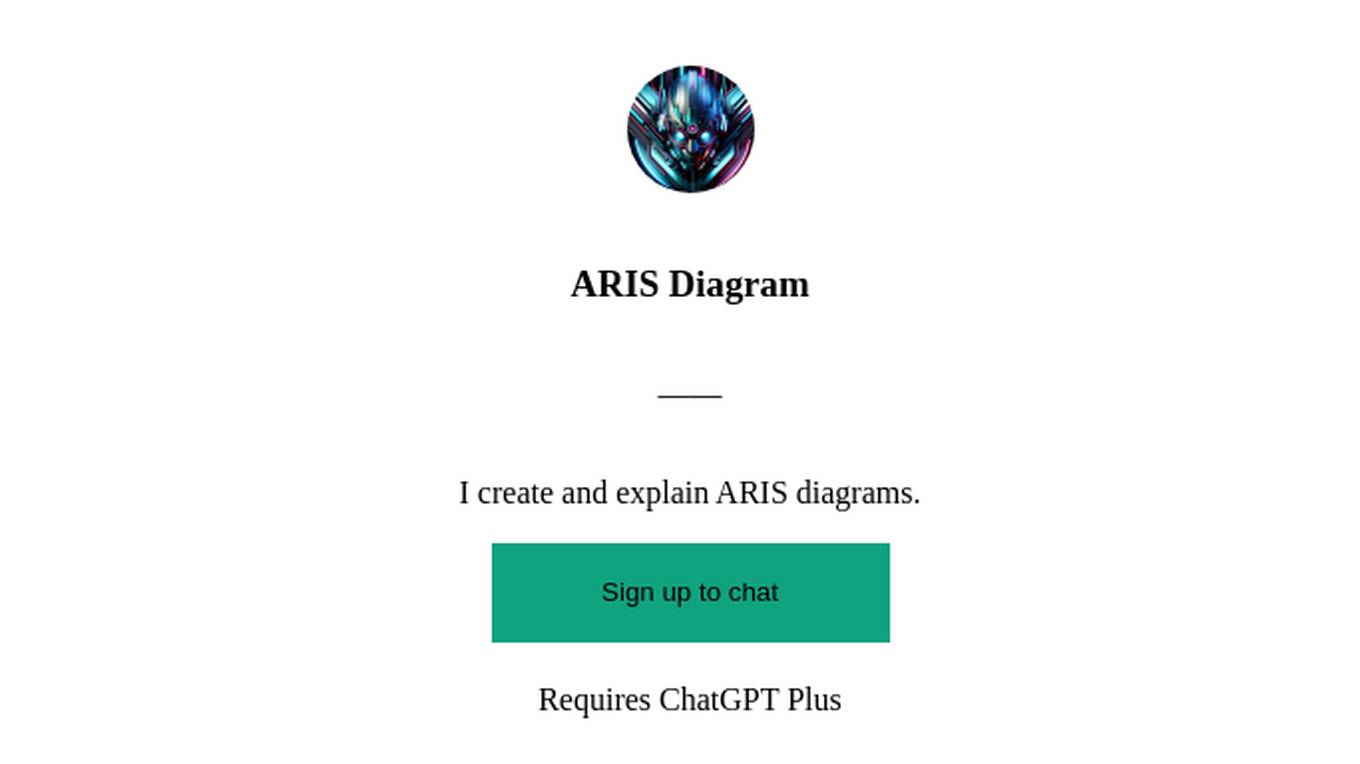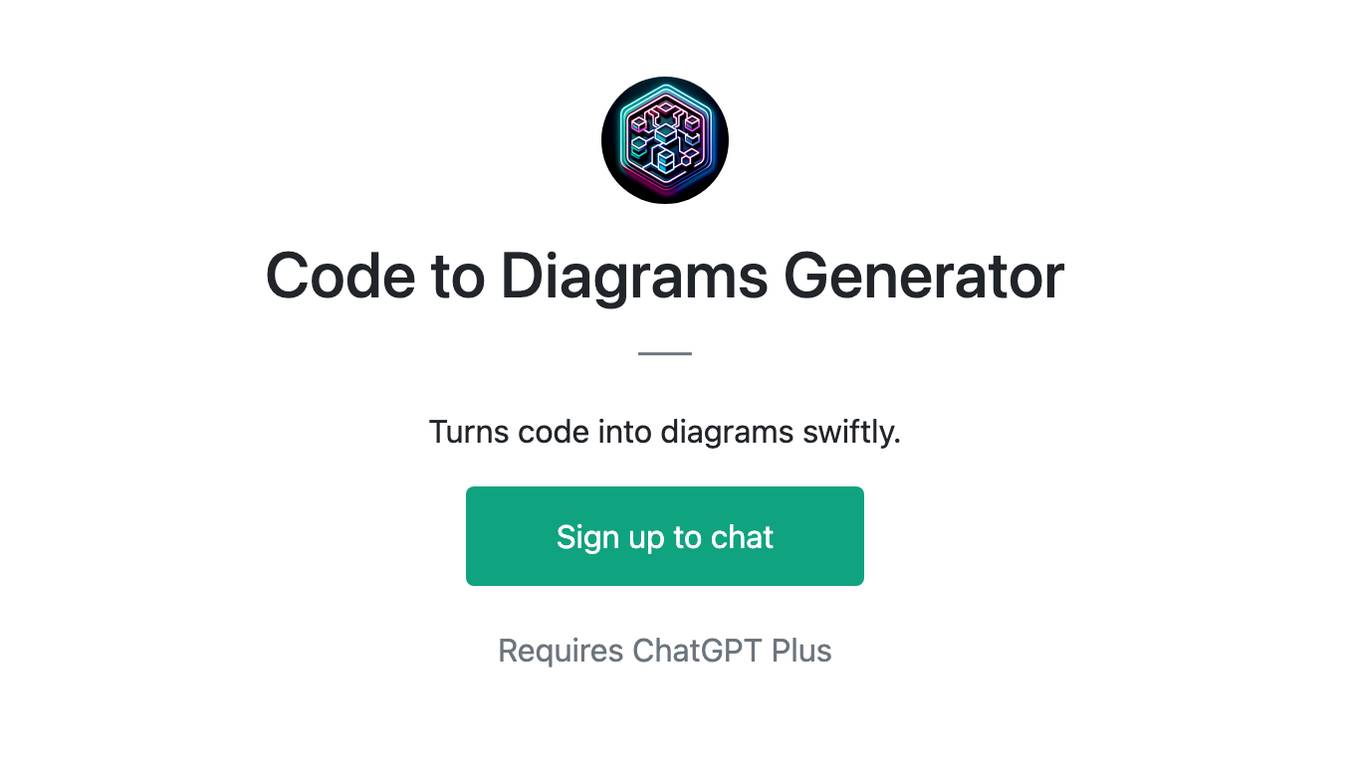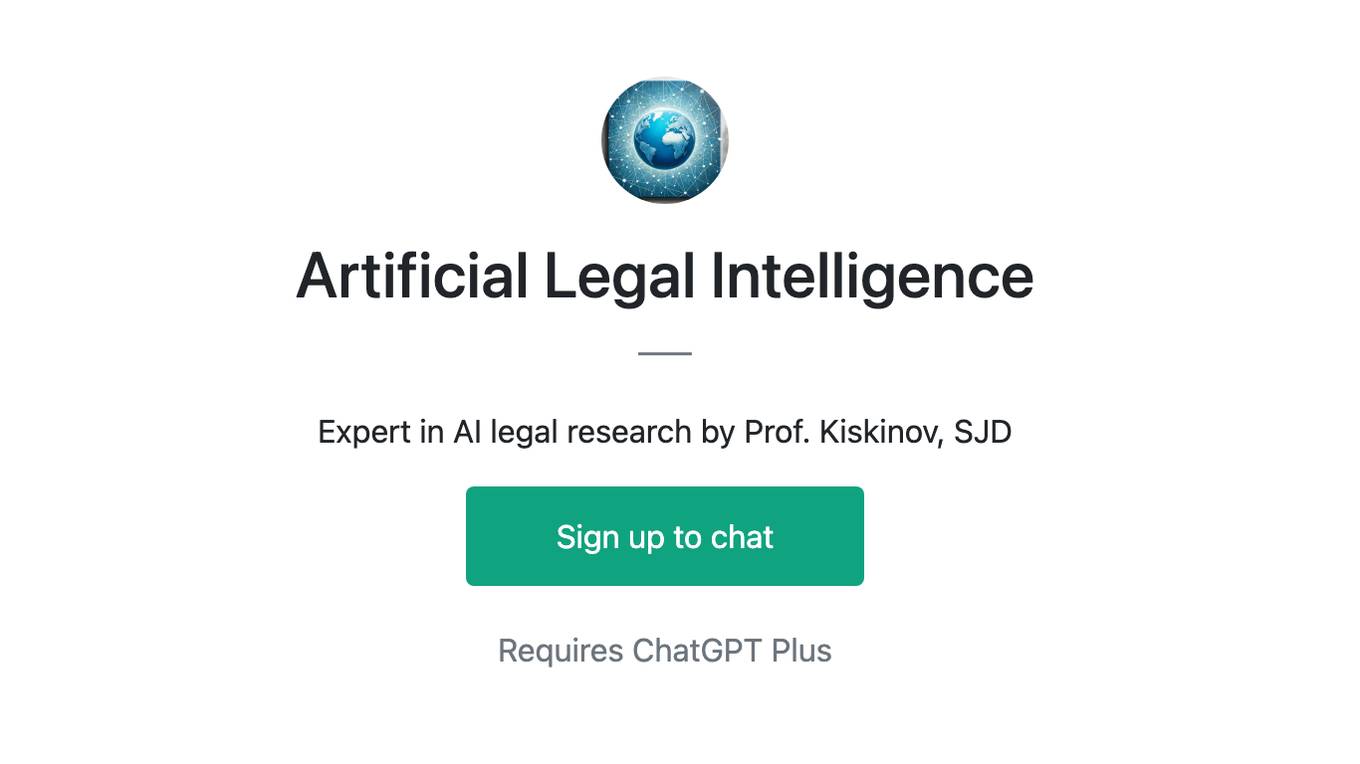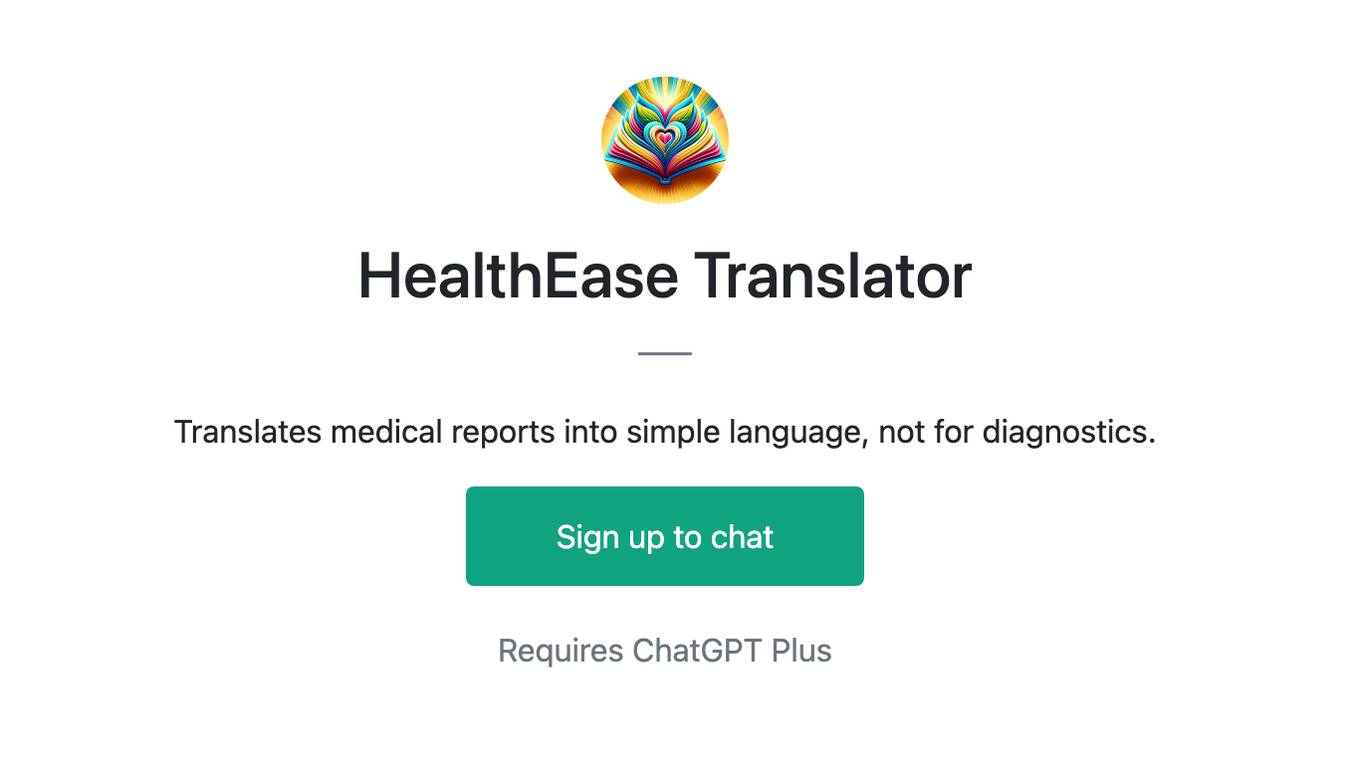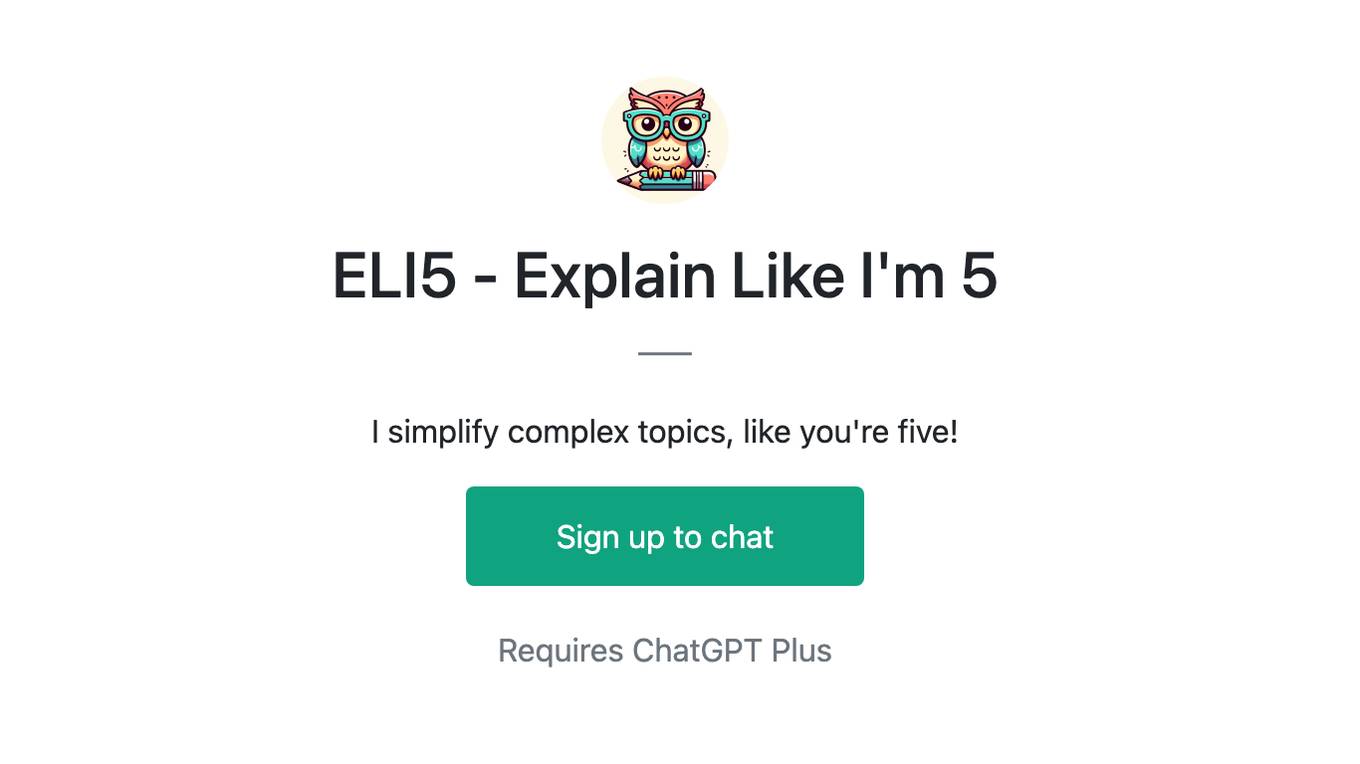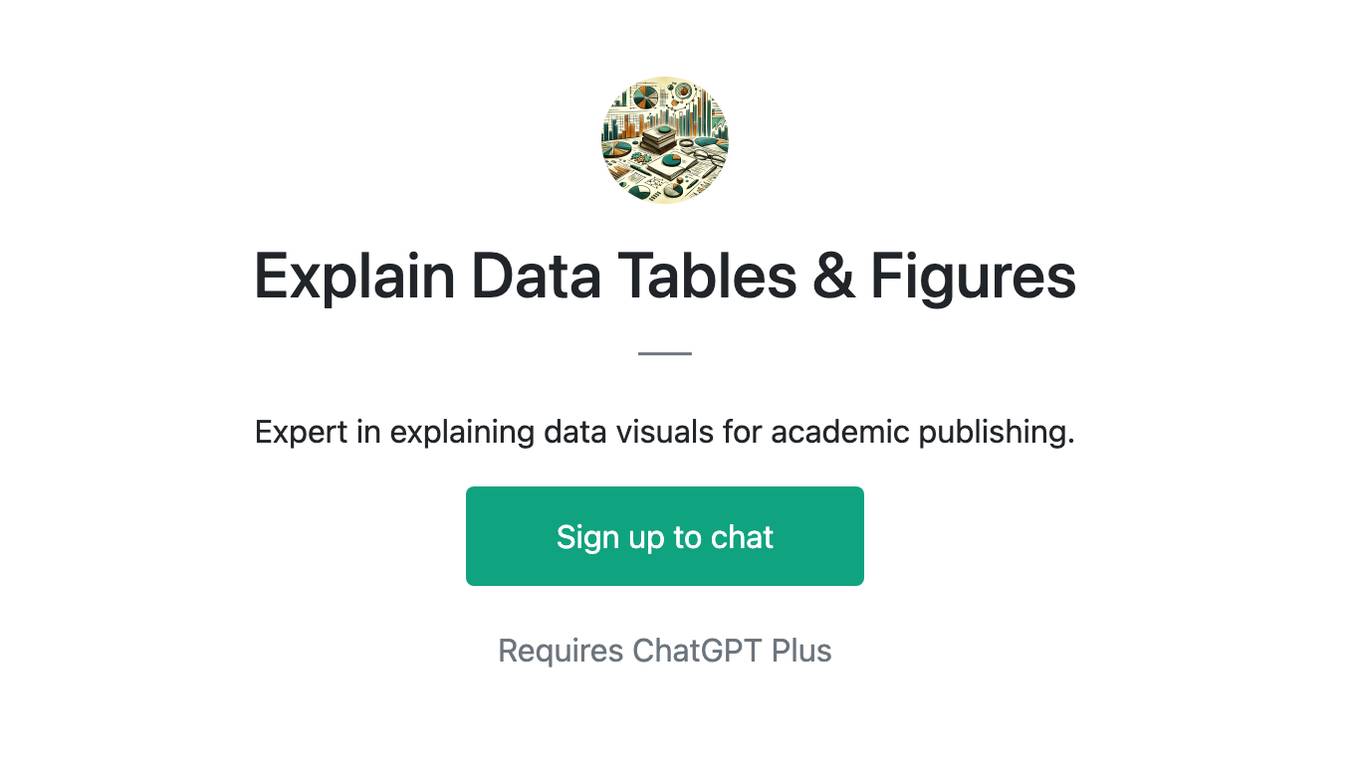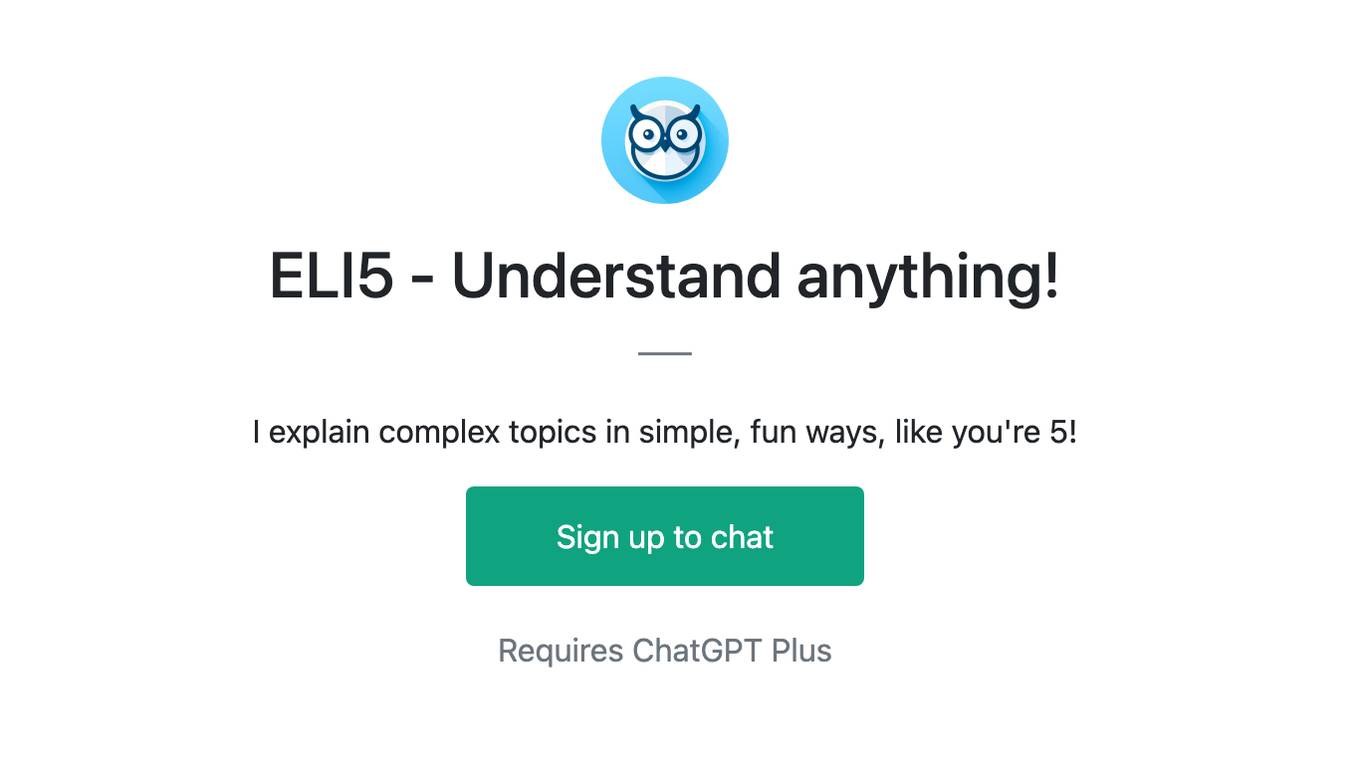Best AI tools for< Explain Document Contents >
20 - AI tool Sites
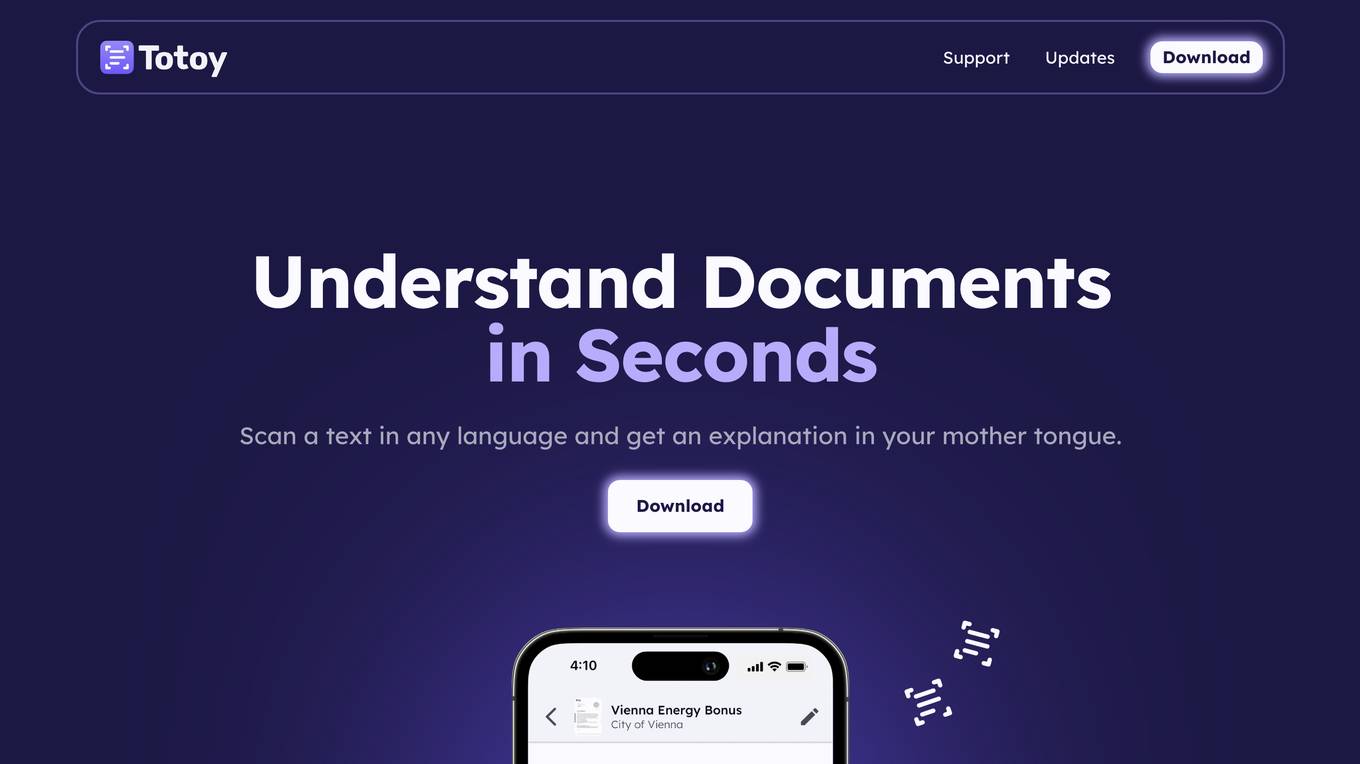
Totoy
Totoy is a Document AI tool that redefines the way documents are processed. Its API allows users to explain, classify, and create knowledge bases from documents without the need for training. The tool supports 19 languages and works with plain text, images, and PDFs. Totoy is ideal for automating workflows, complying with accessibility laws, and creating custom AI assistants for employees or customers.
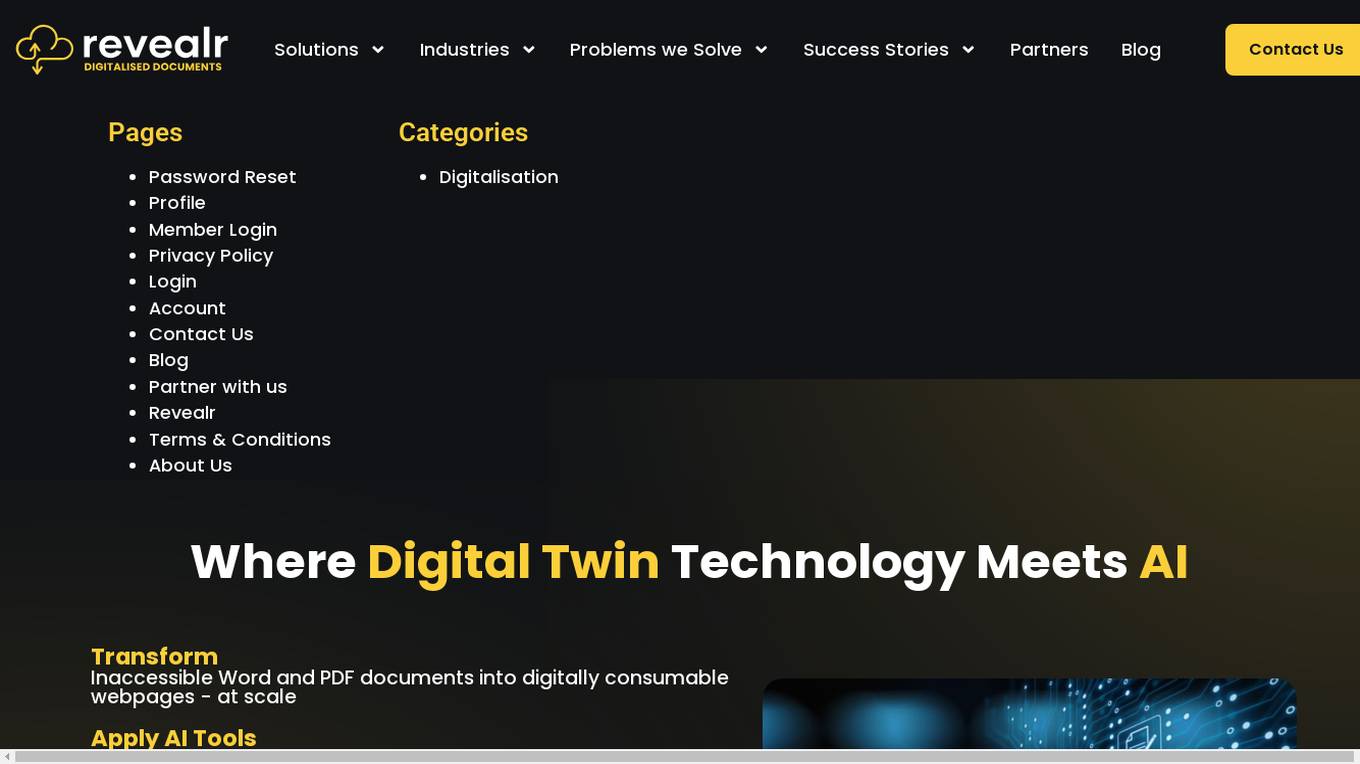
Revealr
Revealr is an AI-powered application that focuses on digitalization for business documents. It offers solutions for transforming, complying, and managing various types of documents using AI technology. Revealr helps organizations unlock knowledge from Word and PDF documents, leverage SharePoint investments, and apply AI in a trusted ecosystem to analyze and explain content. The application aims to deliver real-time access to policies and procedures, reduce costs and risks associated with managing brand portfolios, and empower remote workforces with secure information access. Revealr caters to industries such as financial services, government, insurance, and legal sectors, providing digital solutions to improve compliance, reduce risk, and enhance customer experience.

LLM Council
LLM Council is an AI platform that combines multiple frontier Large Language Models to provide accurate, reliable, and unbiased answers through a structured 3-stage deliberation process with anonymous peer review. It offers reduced bias, higher accuracy, transparency, and collaborative intelligence in addressing complex questions across various domains.
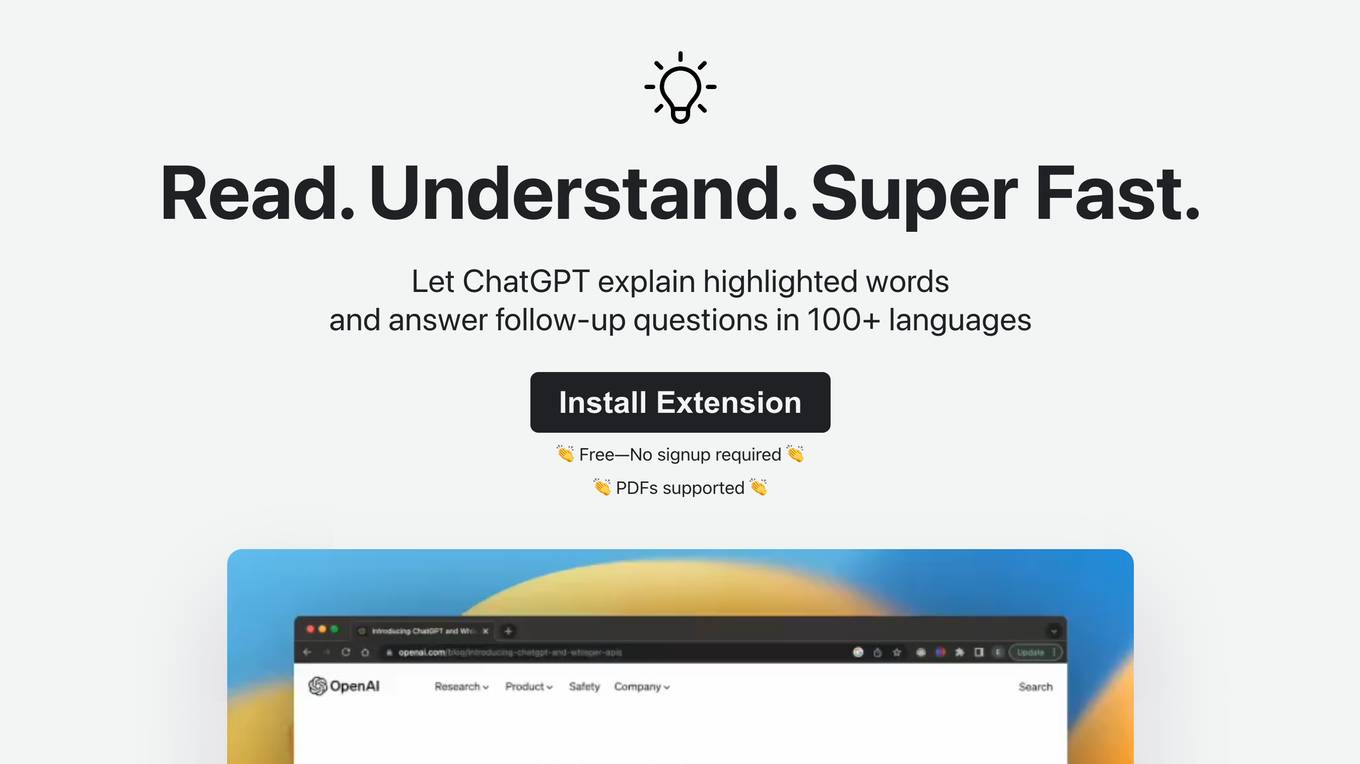
Tooltips.ai
Tooltips.ai is an AI-powered reading extension that provides instant definitions, translations, and summaries for any word or phrase you hover over. It is designed to enhance your reading experience by making it easier and faster to understand complex or unfamiliar content. Tooltips.ai integrates seamlessly with your browser, so you can use it on any website or document.
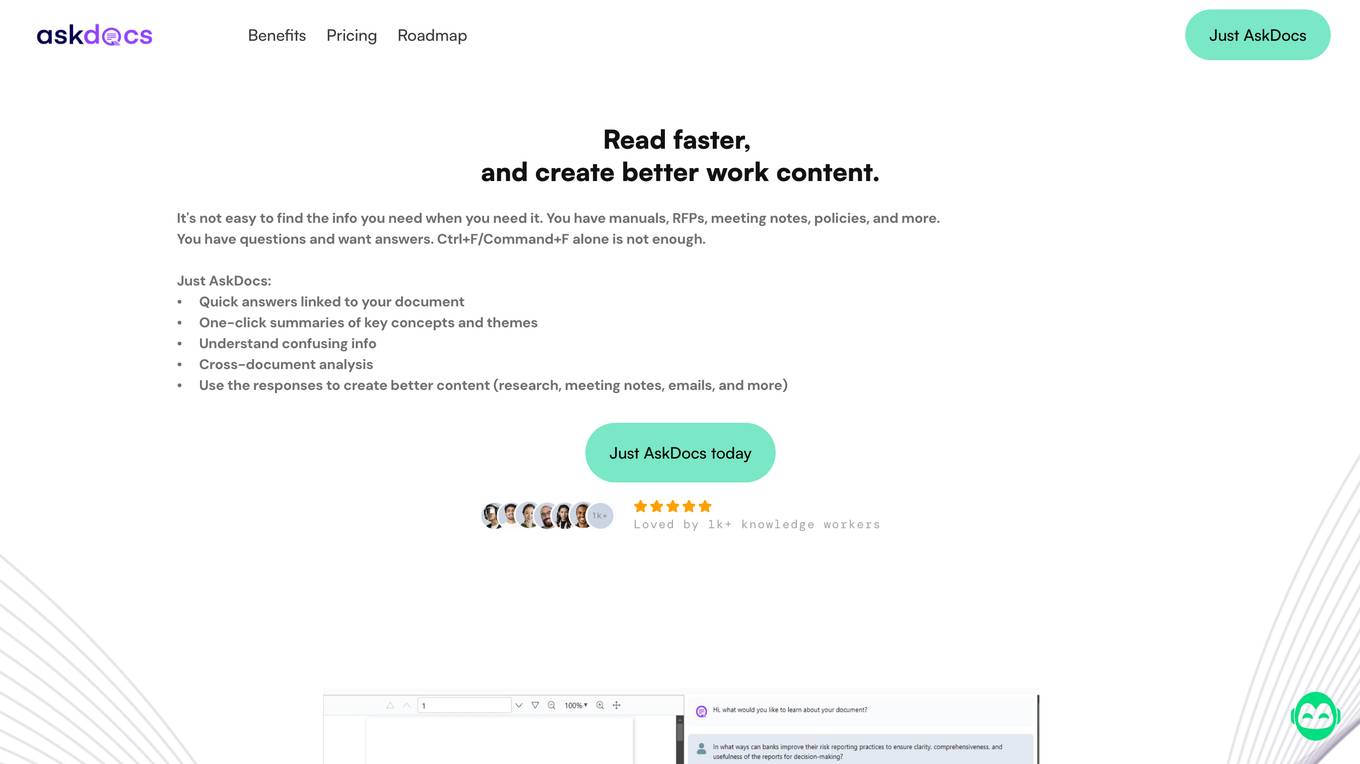
AskDocs
AskDocs is an AI-powered document assistant designed to help users read faster and create better work content. It offers cross-document analysis, quick answers linked to documents, one-click summaries of key concepts, and the ability to understand confusing information. With a focus on enhancing productivity, AskDocs is trusted by students, knowledge workers, and small businesses to streamline research, meeting notes, emails, and more. The tool supports various document types and provides instant answers directly linked to sources within the uploaded documents.
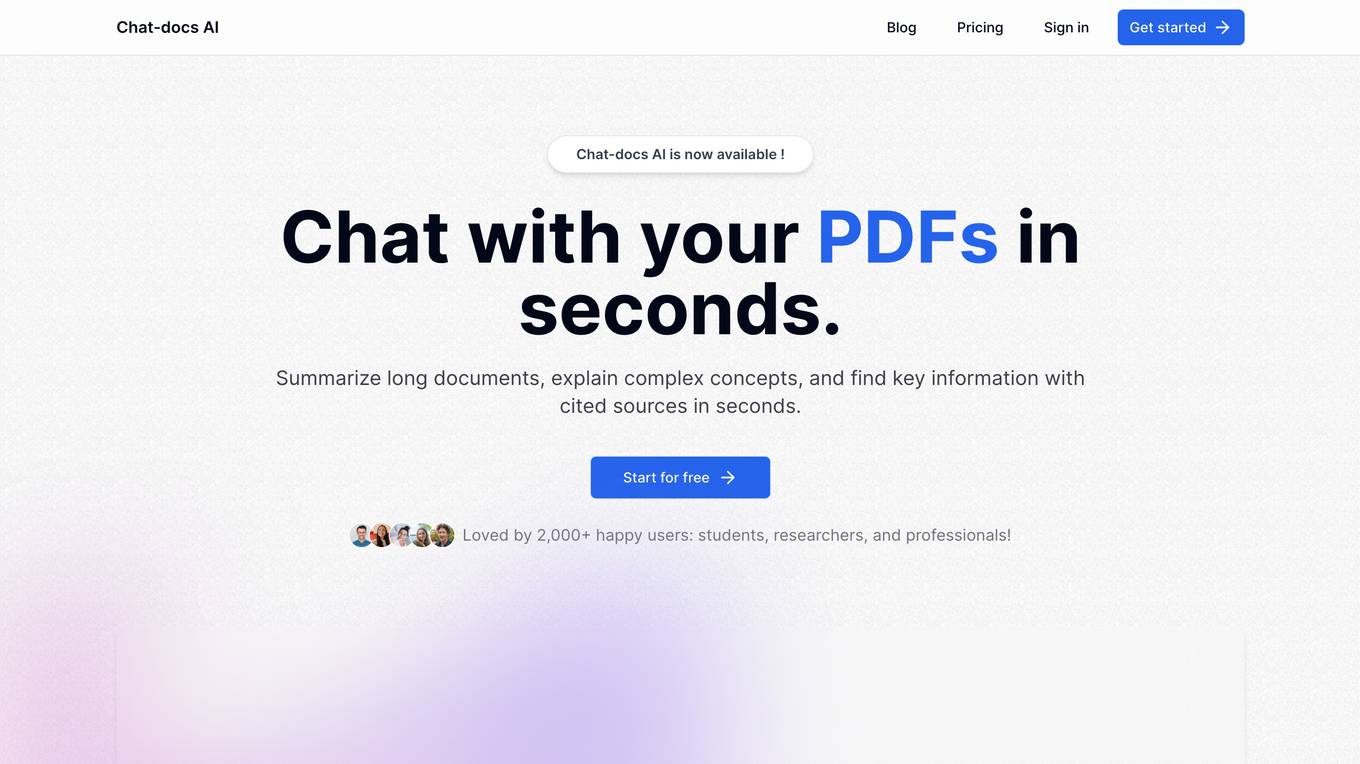
Chat-docs AI
Chat-docs AI is an innovative AI application that allows users to interact with PDF documents through natural language conversations. The tool leverages advanced artificial intelligence algorithms to summarize long documents, explain complex concepts, and find key information with cited sources in seconds. It transforms PDFs into intelligent entities capable of dialogue, making learning, research, and analysis more interactive and personalized. Chat-docs AI is designed to be intuitive, secure, and accessible to users from various backgrounds, revolutionizing the way individuals engage with textual content.
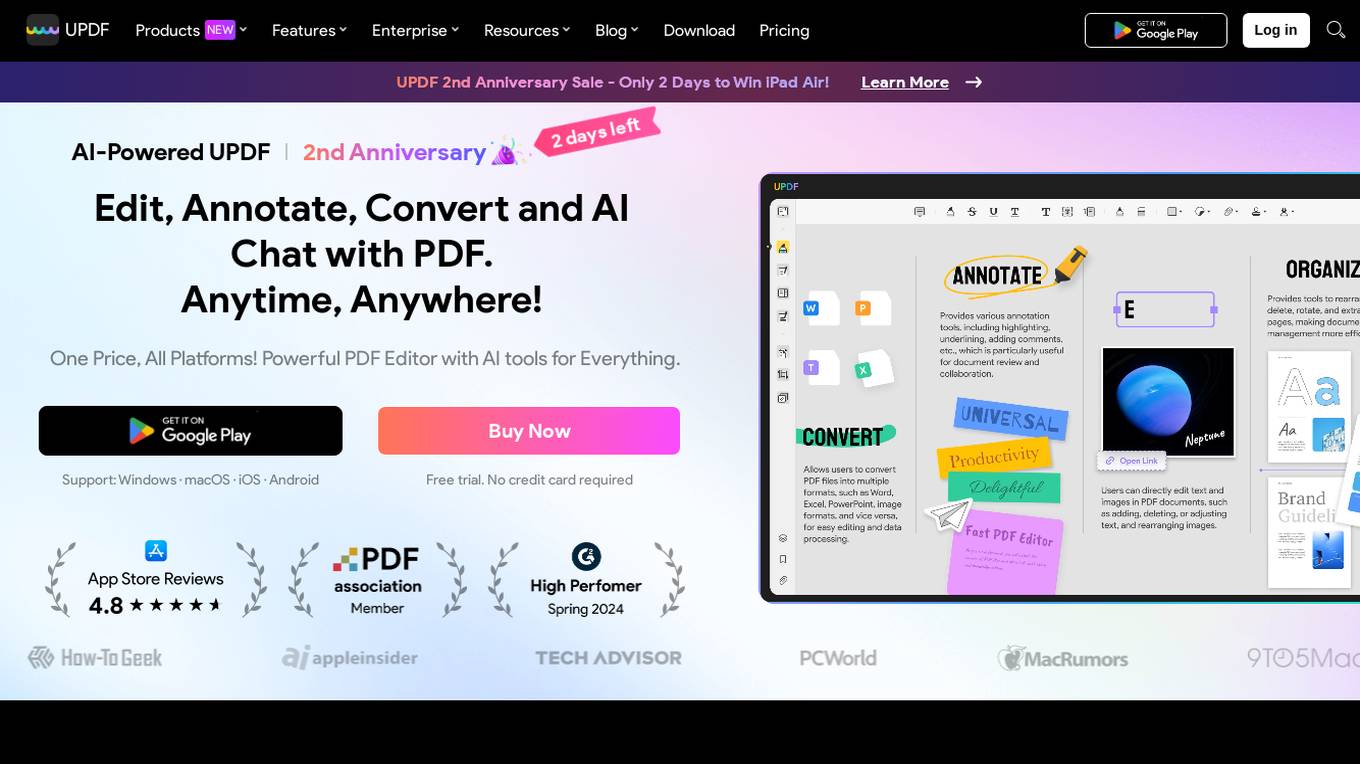
UPDF
UPDF is an AI-integrated PDF editor, converter, annotator, and reader that offers a comprehensive set of features for seamless PDF editing. It provides cross-platform support on Windows, Mac, iOS, and Android devices. With UPDF AI capabilities, users can summarize, translate, and chat with PDF, making it a versatile tool for various tasks. The application is user-friendly, well-priced, and reliable, catering to both individual and enterprise needs. UPDF also offers localized interface in 11 languages and responsive customer support.
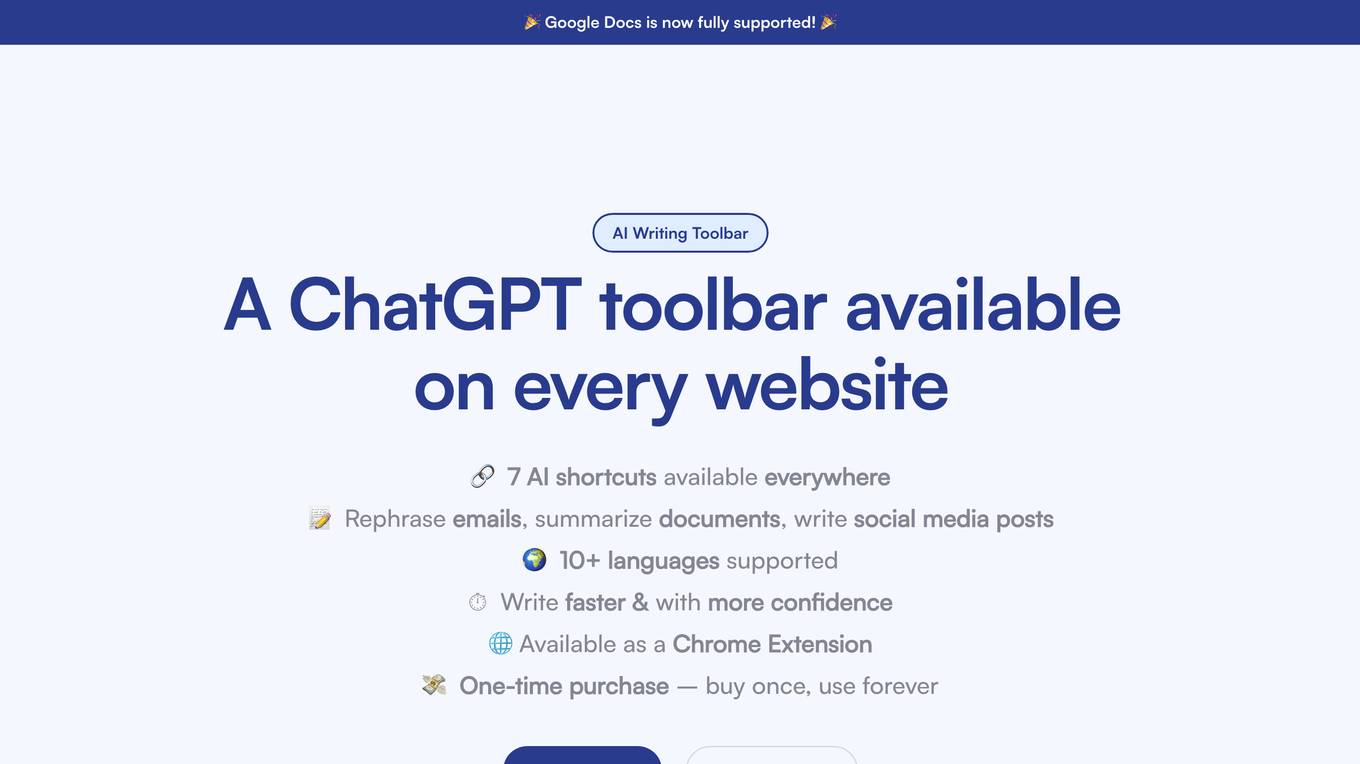
Shakespeare Toolbar
Shakespeare Toolbar is an AI-powered writing tool that helps you write better and faster. It is available as a Chrome extension and can be used on any website. With Shakespeare Toolbar, you can rephrase emails, summarize documents, write social media posts, and more. It supports over 10 languages and is available for a one-time purchase of $49.
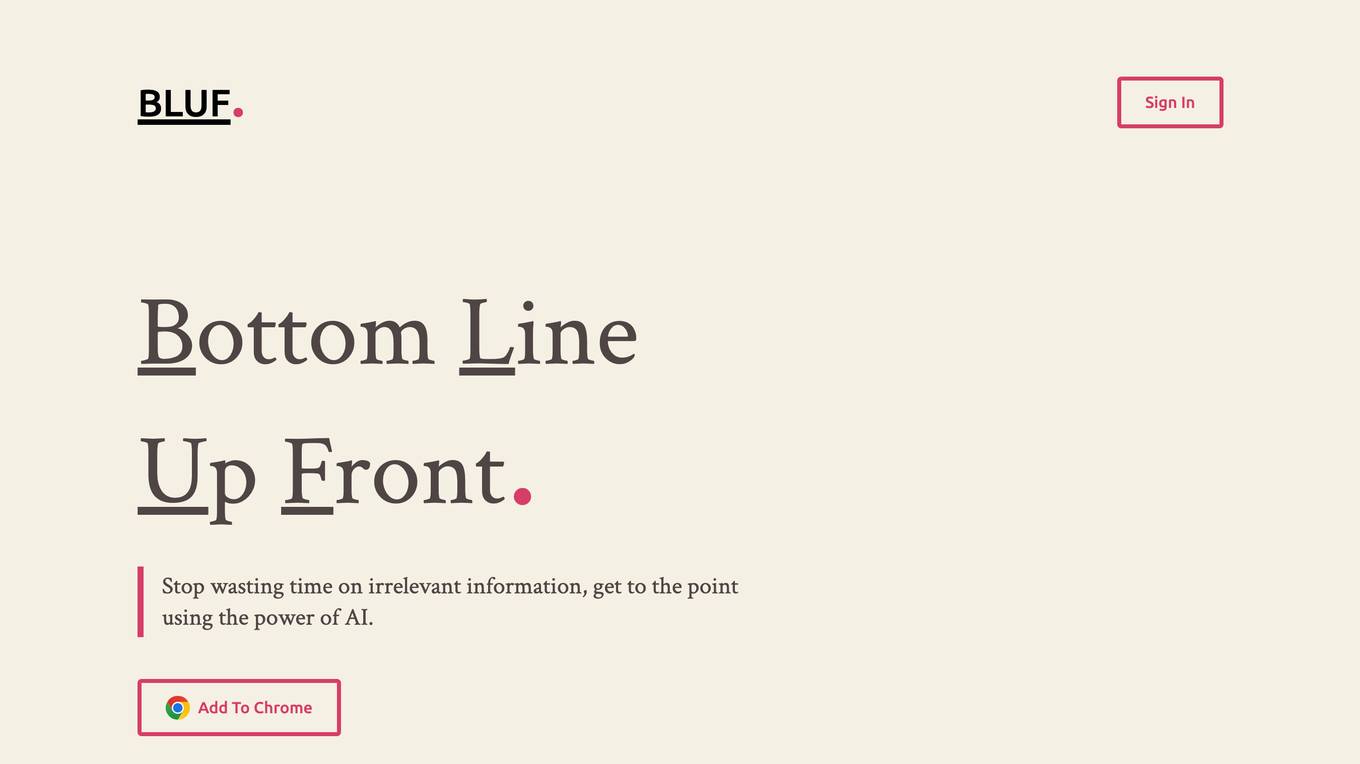
BLUF
BLUF is an AI-powered web page assistant that provides concise answers, summaries, and explanations of web pages. It helps users to quickly and easily get the information they need from any web page, without having to read through irrelevant or unnecessary content. BLUF is available as a browser extension for Chrome and Firefox, and it can be used to summarize or explain any web page with a single click.
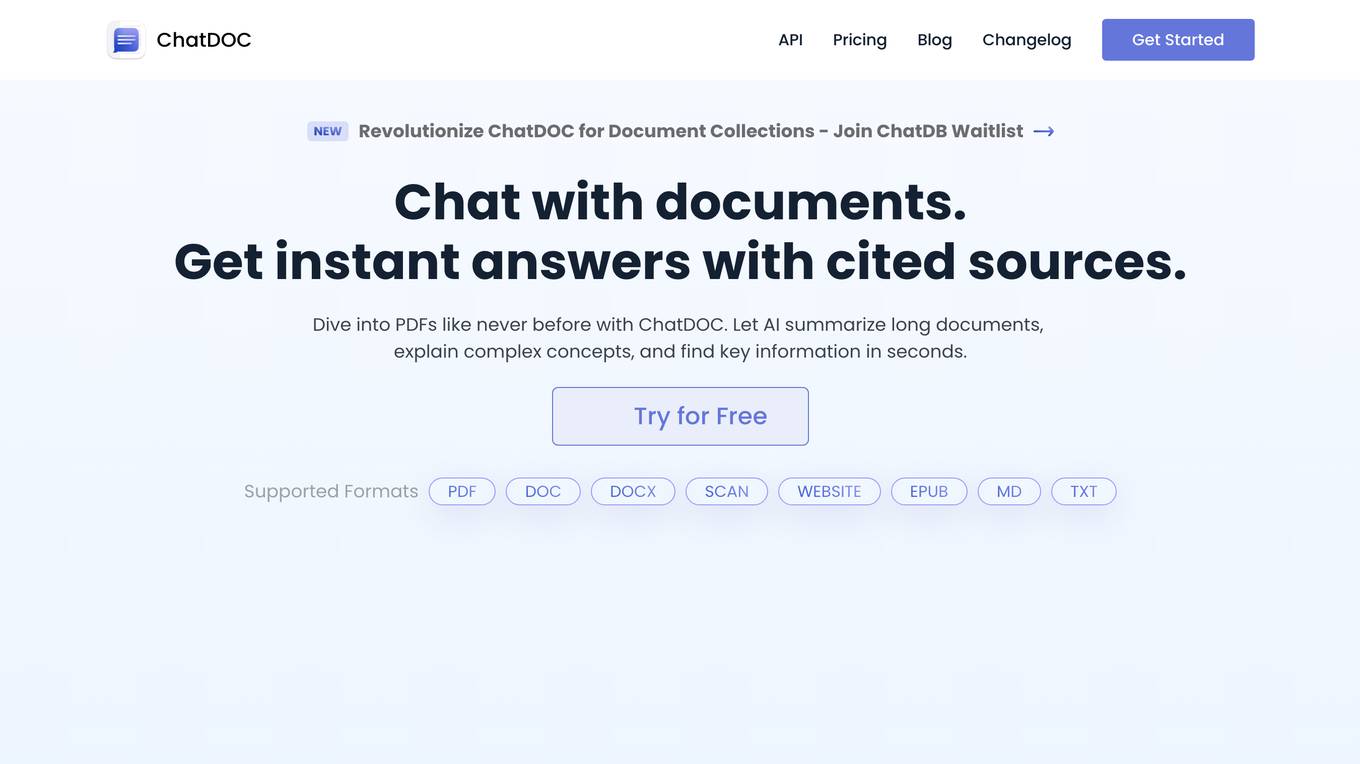
ChatDOC
ChatDOC is an AI-powered tool that allows users to chat with PDF documents and get instant answers with cited sources. It can summarize long documents, explain complex concepts, and find key information in seconds. ChatDOC is built for professionals and is used by over 500,000 global users.
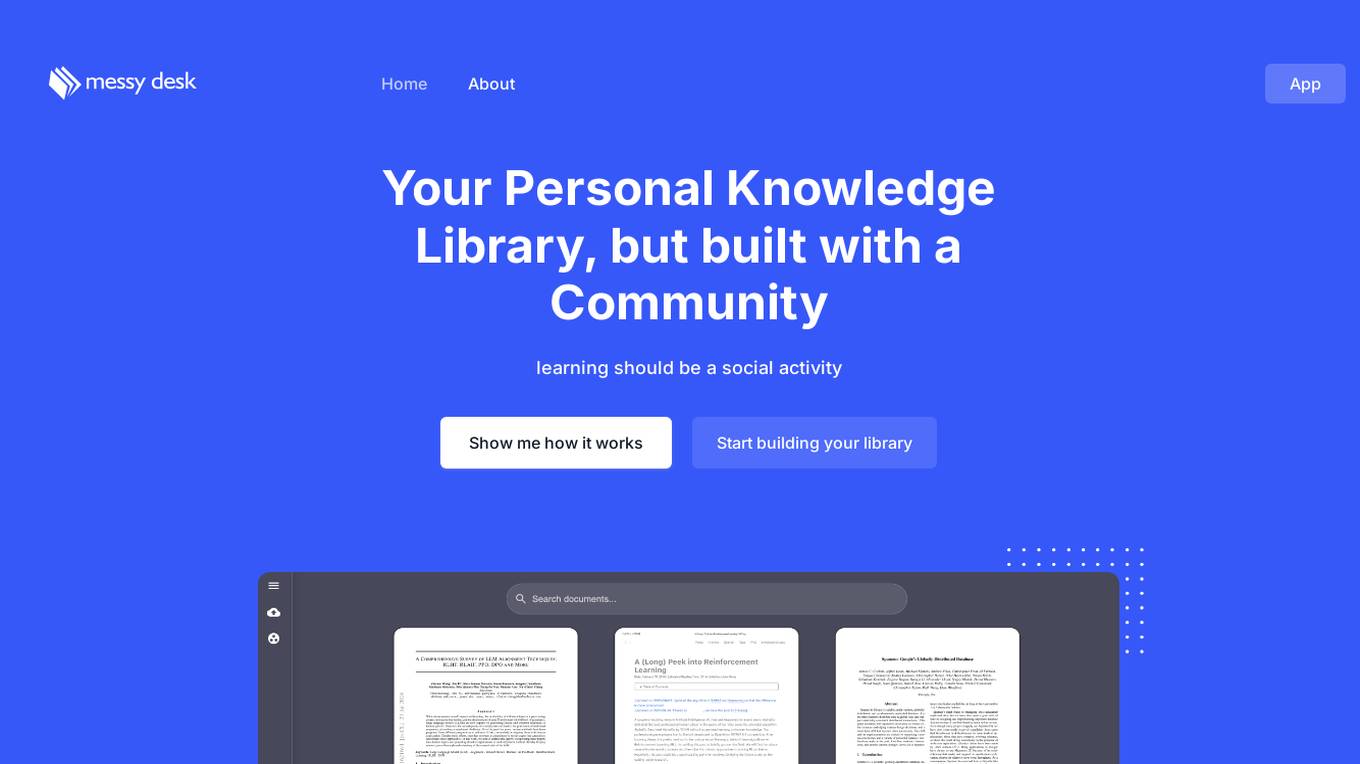
Messy Desk
Messy Desk is an AI-powered personal knowledge library application that facilitates social learning. It offers features such as Smart Preview for summarizing documents, Powerful Search with semantic capabilities, AI Explanations for complex topics, Interactive Chat for instant answers, and Community Discussion for sharing insights. Users can easily upload PDFs or URLs to build their library and engage in collaborative learning.
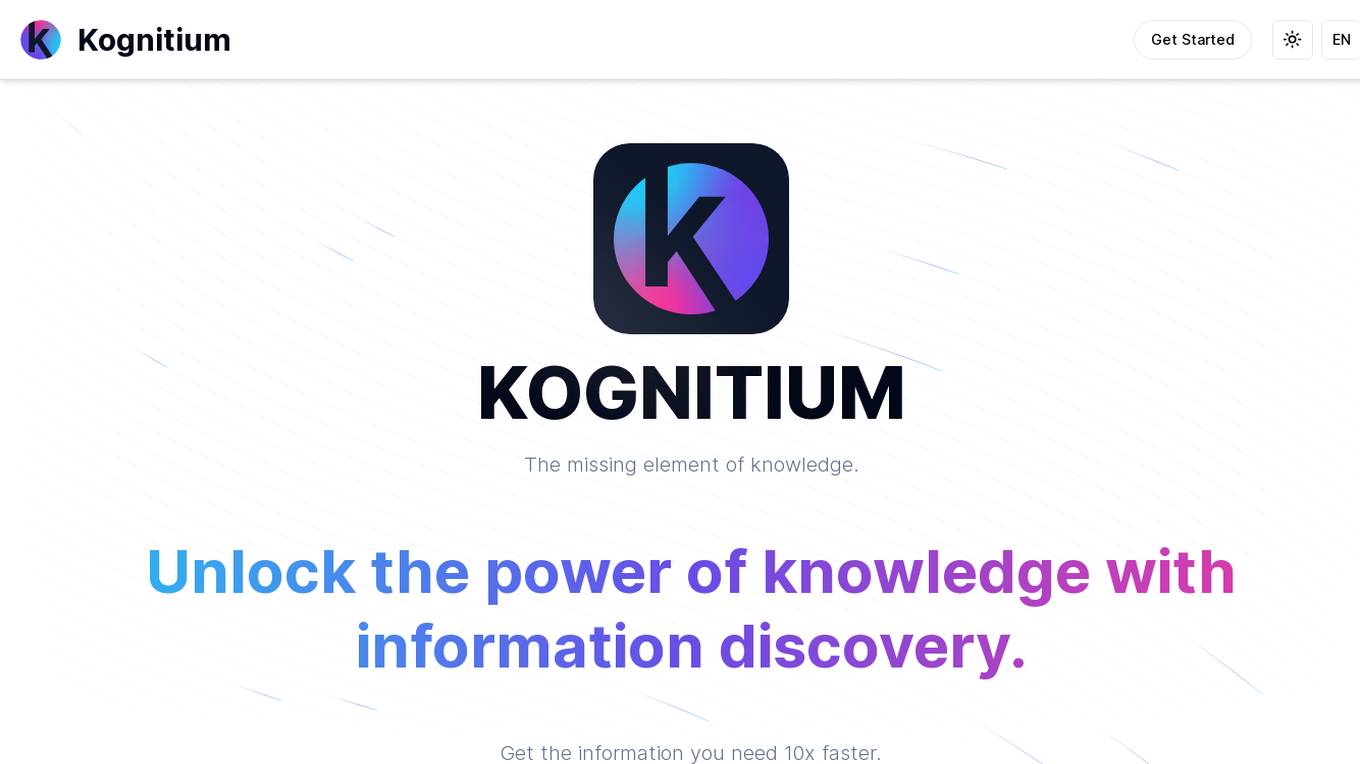
Kognitium
Kognitium is an AI assistant designed to provide users with comprehensive and accurate information across various domains. It is equipped with advanced capabilities that enable it to understand the intent behind user inquiries and deliver tailored responses. Kognitium's knowledge base spans a wide range of subjects, including current events, science, history, philosophy, and linguistics. It is designed to be user-friendly and accessible, making it a valuable tool for students, professionals, and anyone seeking to expand their knowledge. Kognitium is committed to providing reliable and actionable insights, empowering users to make informed decisions and enhance their understanding of the world around them.
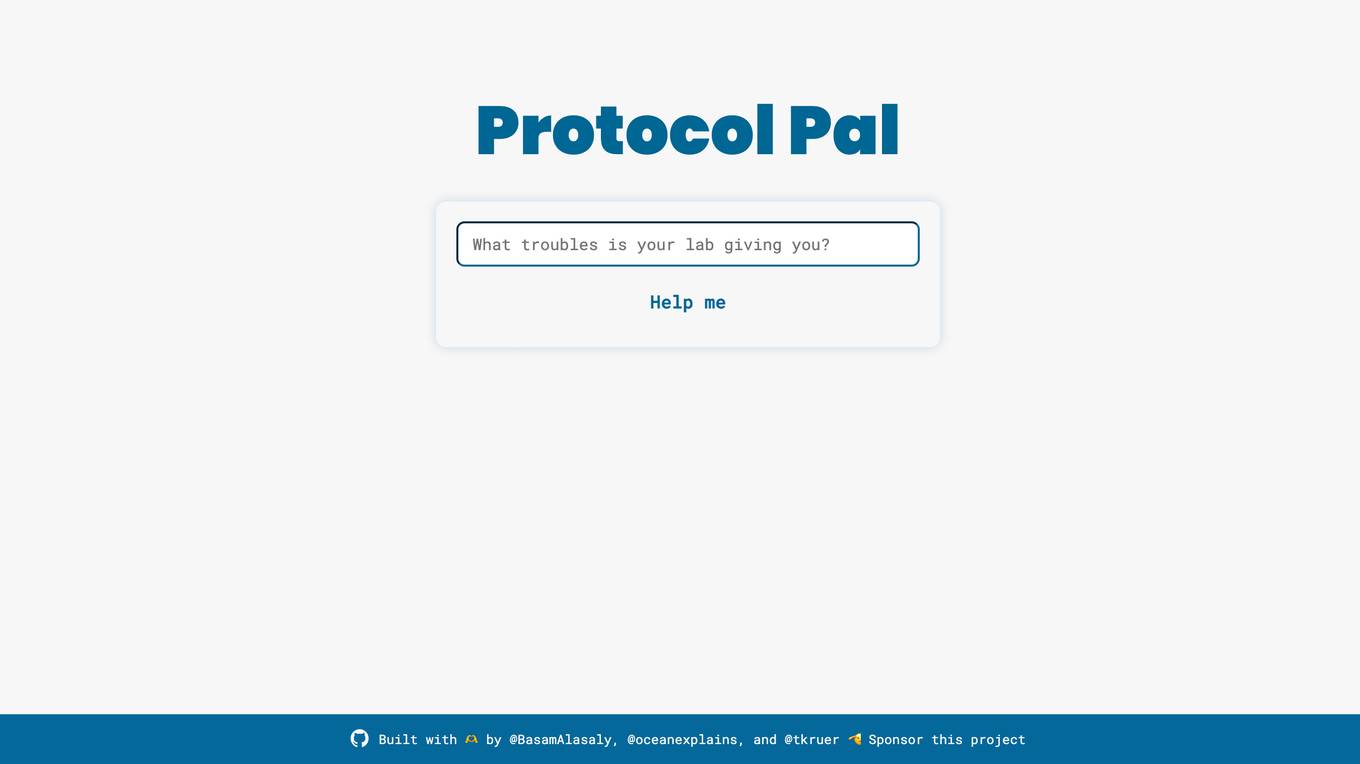
Protocol Pal
Protocol Pal is a website designed to help users with building protocols. It is a platform created by Basam Alasaly, Ocean Explains, and Tkruer. The website aims to assist individuals in creating structured protocols efficiently. Users can benefit from the tool's features to streamline their protocol development process. Protocol Pal is a valuable resource for anyone looking to organize and document their procedures effectively.
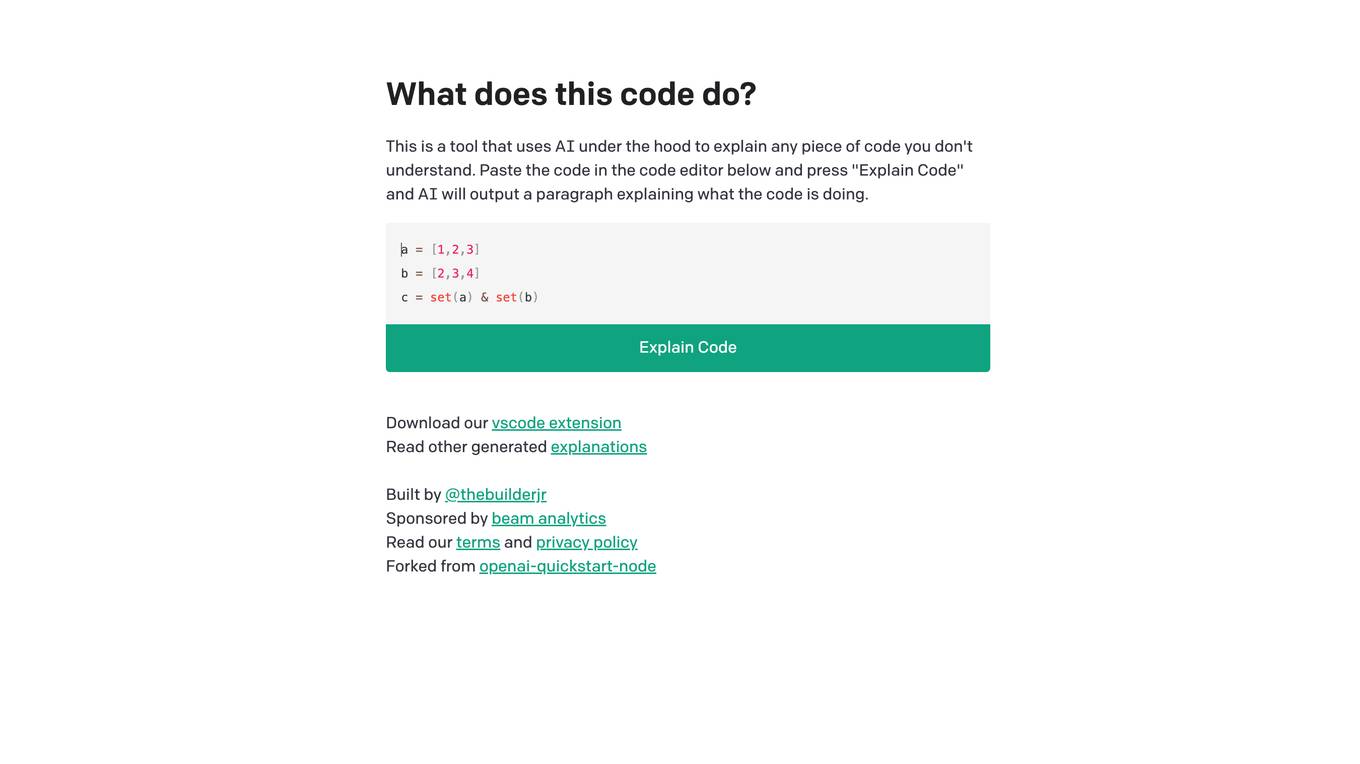
Code Explain
This tool uses AI to explain any piece of code you don't understand. Simply paste the code in the code editor and press "Explain Code" and AI will output a paragraph explaining what the code is doing.
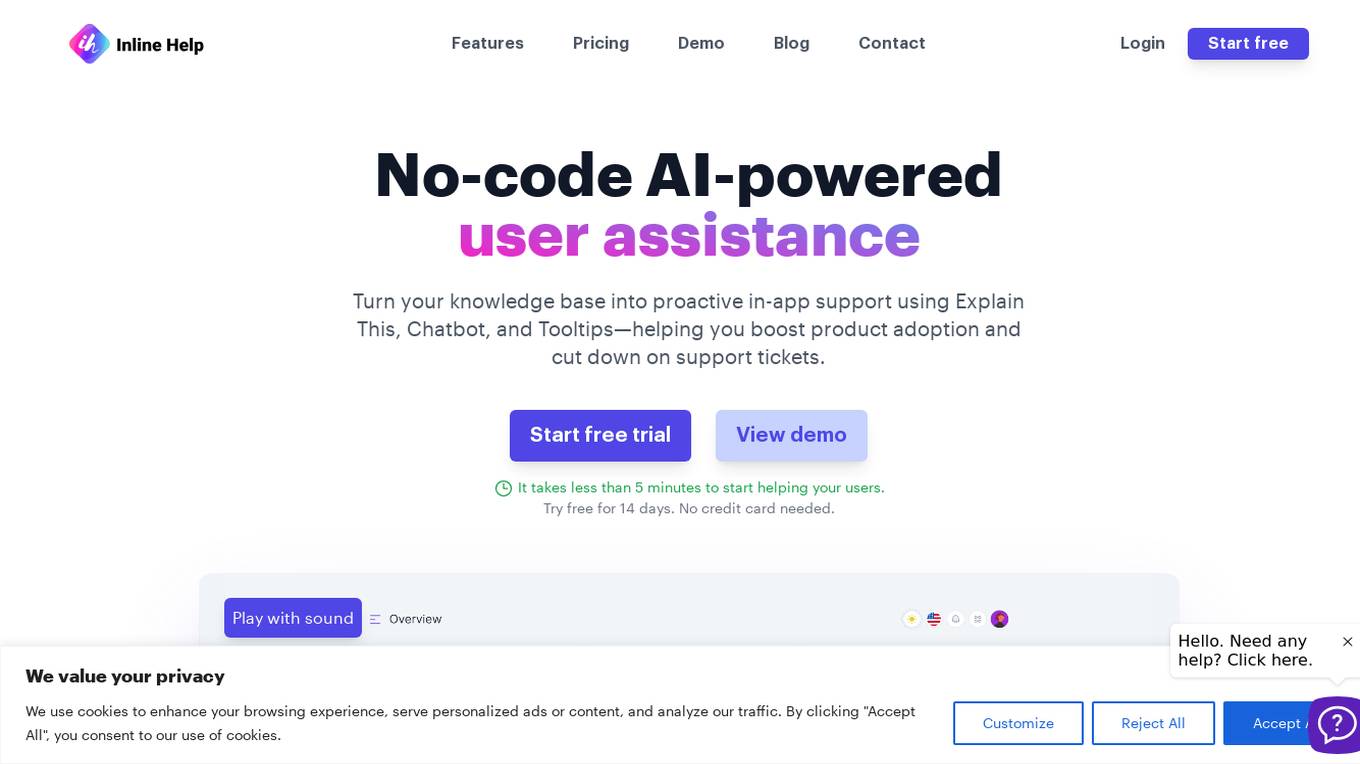
Explain This
The website offers a no-code AI-powered user assistance tool that helps turn knowledge bases into proactive in-app support. It features Explain This for in-app contextual mastery, Chatbot for real-time intelligent responses, Tooltips for effortless interaction, Widget for a centralized help hub, Knowledge Base for context-based empowerment, and Ticket Form for hassle-free issue reporting. The tool supports seven languages and aims to boost product adoption while reducing support tickets.

Whybug
Whybug is an AI tool designed to help developers debug their code by providing explanations for errors. By utilizing a large language model trained on data from StackExchange and other sources, Whybug can predict the causes of errors and suggest fixes. Users can simply paste an error message and receive detailed explanations on how to resolve the issue. The tool aims to streamline the debugging process and improve code quality.
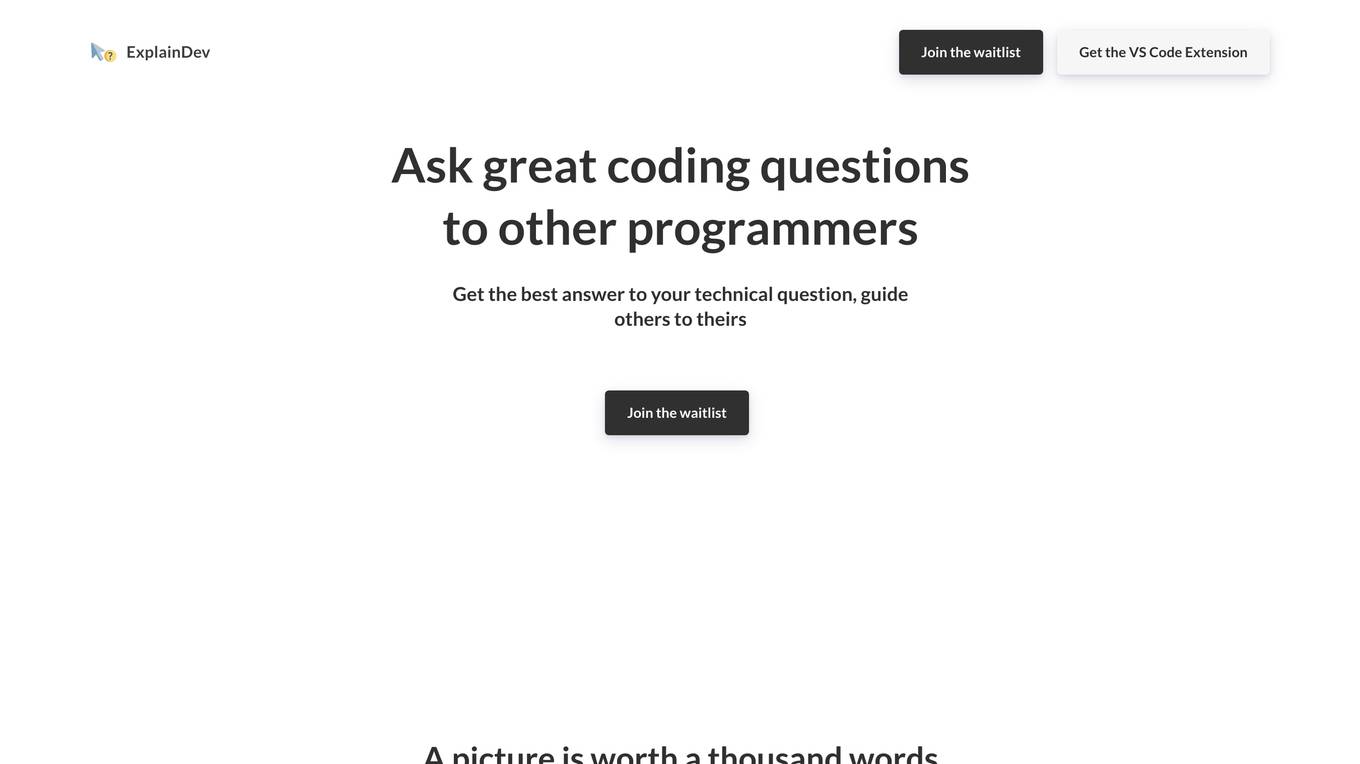
ExplainDev
ExplainDev is a platform that allows users to ask and answer technical coding questions. It uses computer vision to retrieve technical context from images or videos. The platform is designed to help developers get the best answers to their technical questions and guide others to theirs.
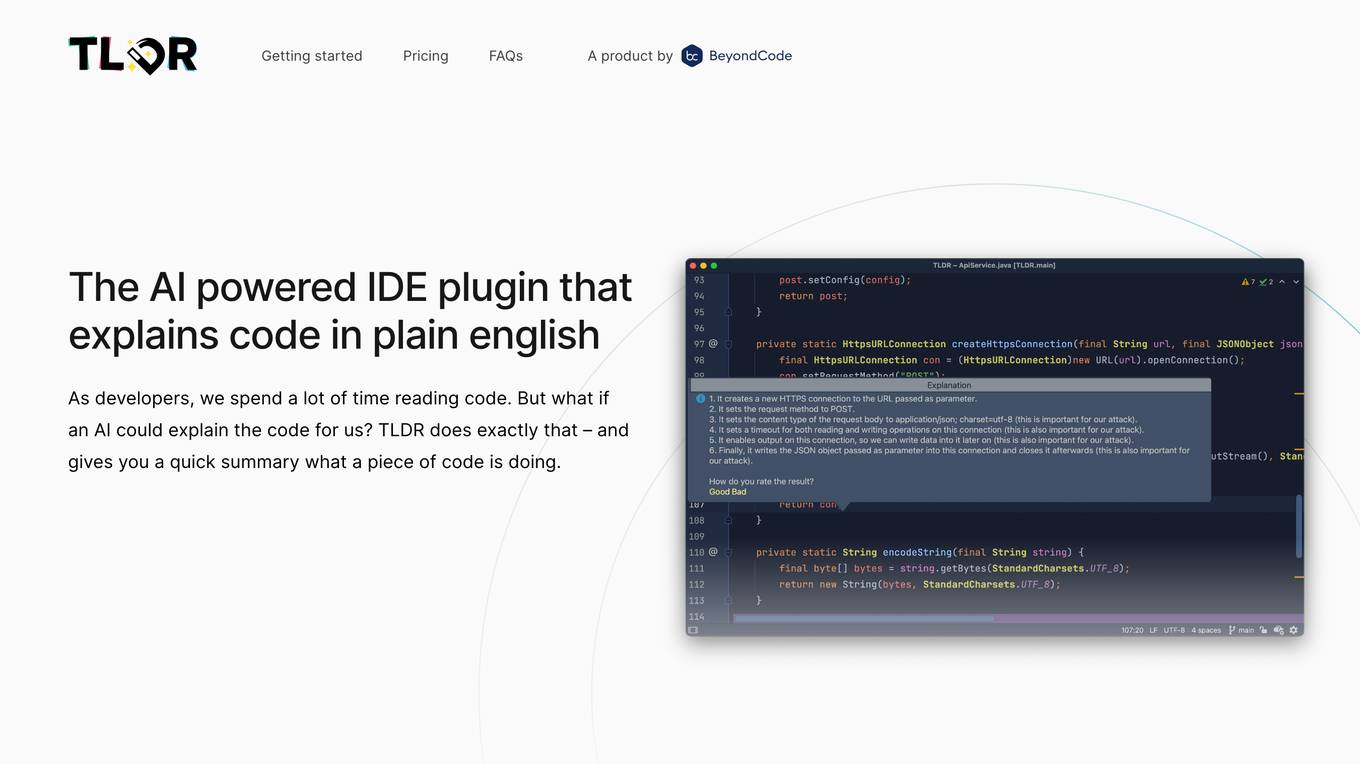
TLDR
TLDR is an AI-powered IDE plugin that explains code in plain English. It helps developers understand code by providing quick summaries of what a piece of code is doing. The tool supports almost all programming languages and offers a free version for users to try before purchasing. TLDR aims to simplify the understanding of complex code structures and save developers time in comprehending codebases.
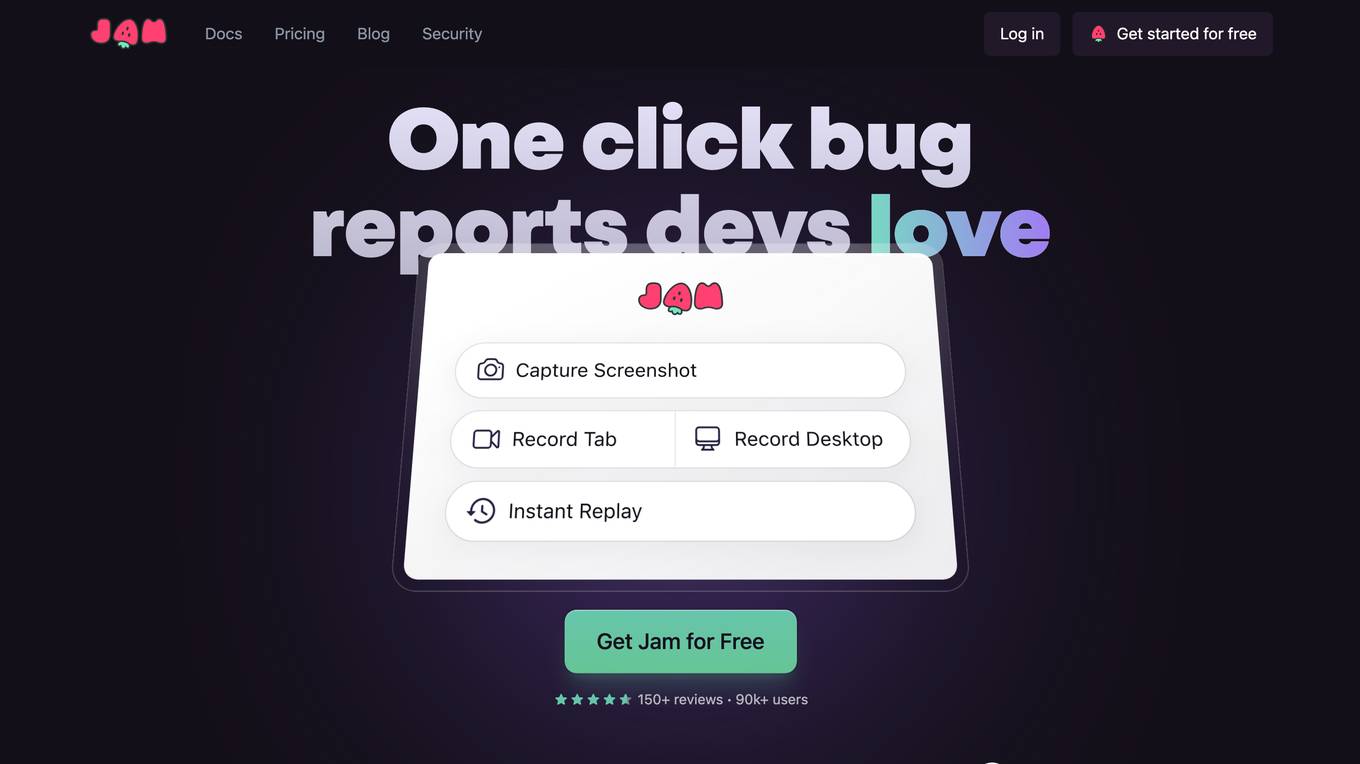
Jam
Jam is a bug-tracking tool that helps developers reproduce and debug issues quickly and easily. It automatically captures all the information engineers need to debug, including device and browser information, console logs, network logs, repro steps, and backend tracing. Jam also integrates with popular tools like GitHub, Jira, Linear, Slack, ClickUp, Asana, Sentry, Figma, Datadog, Gitlab, Notion, and Airtable. With Jam, developers can save time and effort by eliminating the need to write repro steps and manually collect information. Jam is used by over 90,000 developers and has received over 150 positive reviews.
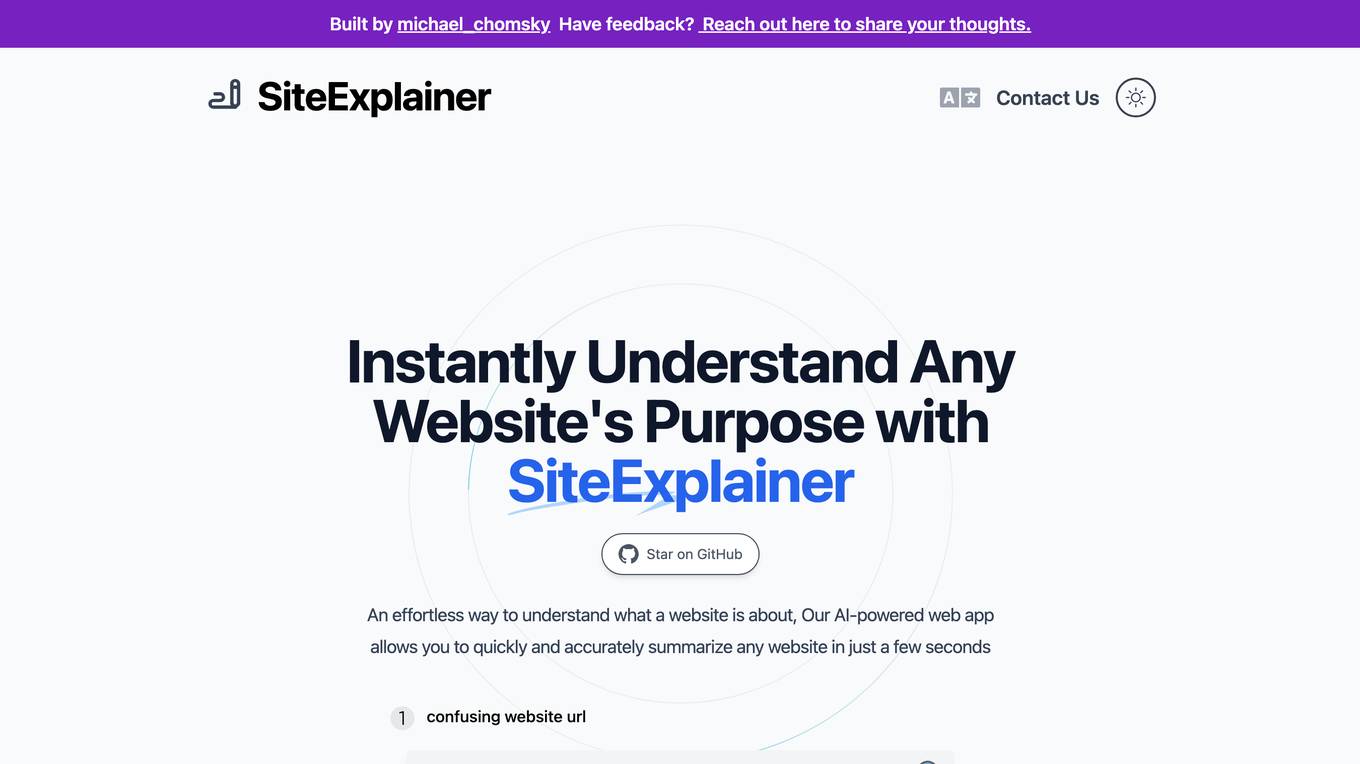
SiteExplainer
SiteExplainer is an AI-powered web application that helps users understand the purpose of any website quickly and accurately. It uses advanced artificial intelligence and machine learning technology to analyze the content of a website and present a summary of the main ideas and key points. SiteExplainer simplifies the language used on landing pages and eliminates corporate jargon to help visitors better understand a website's content.
0 - Open Source AI Tools
20 - OpenAI Gpts
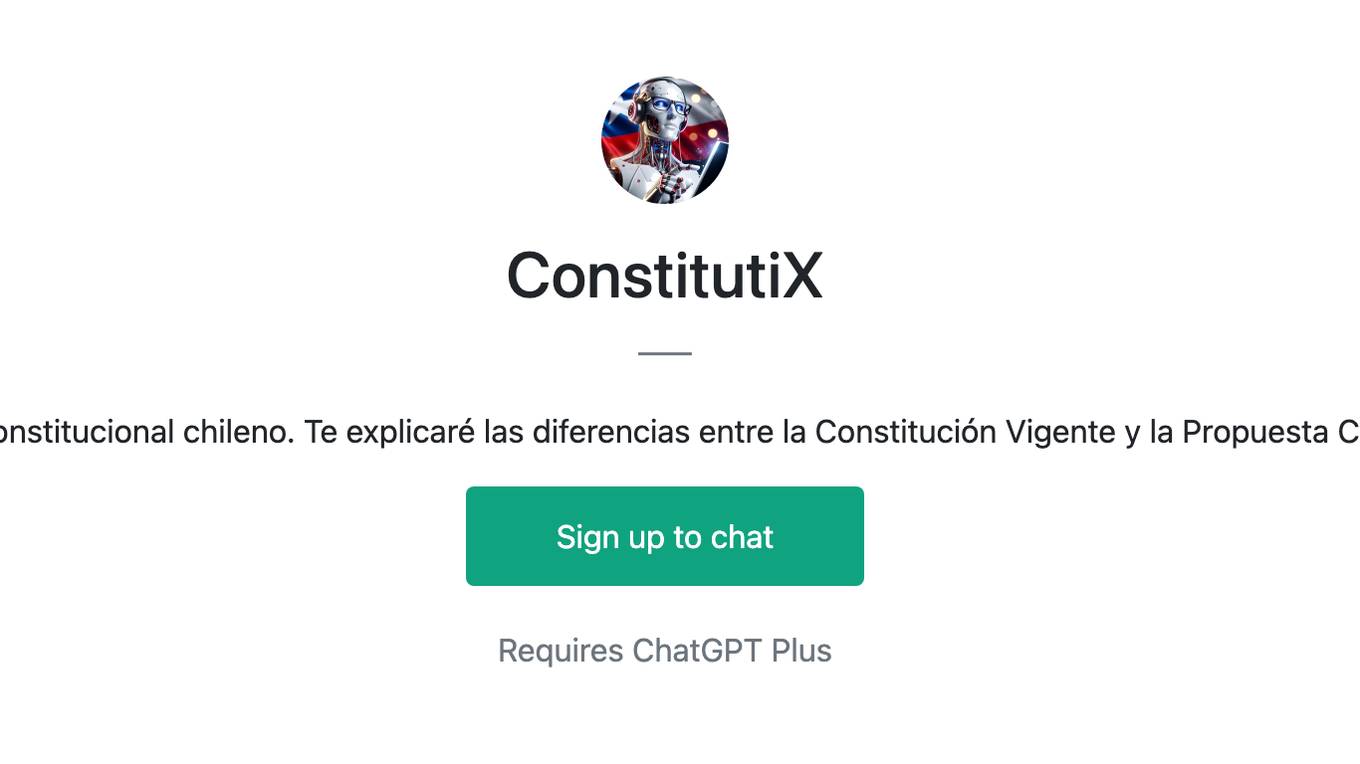
ConstitutiX
Asesor en derecho constitucional chileno. Te explicaré las diferencias entre la Constitución Vigente y la Propuesta Constitucional 2023.
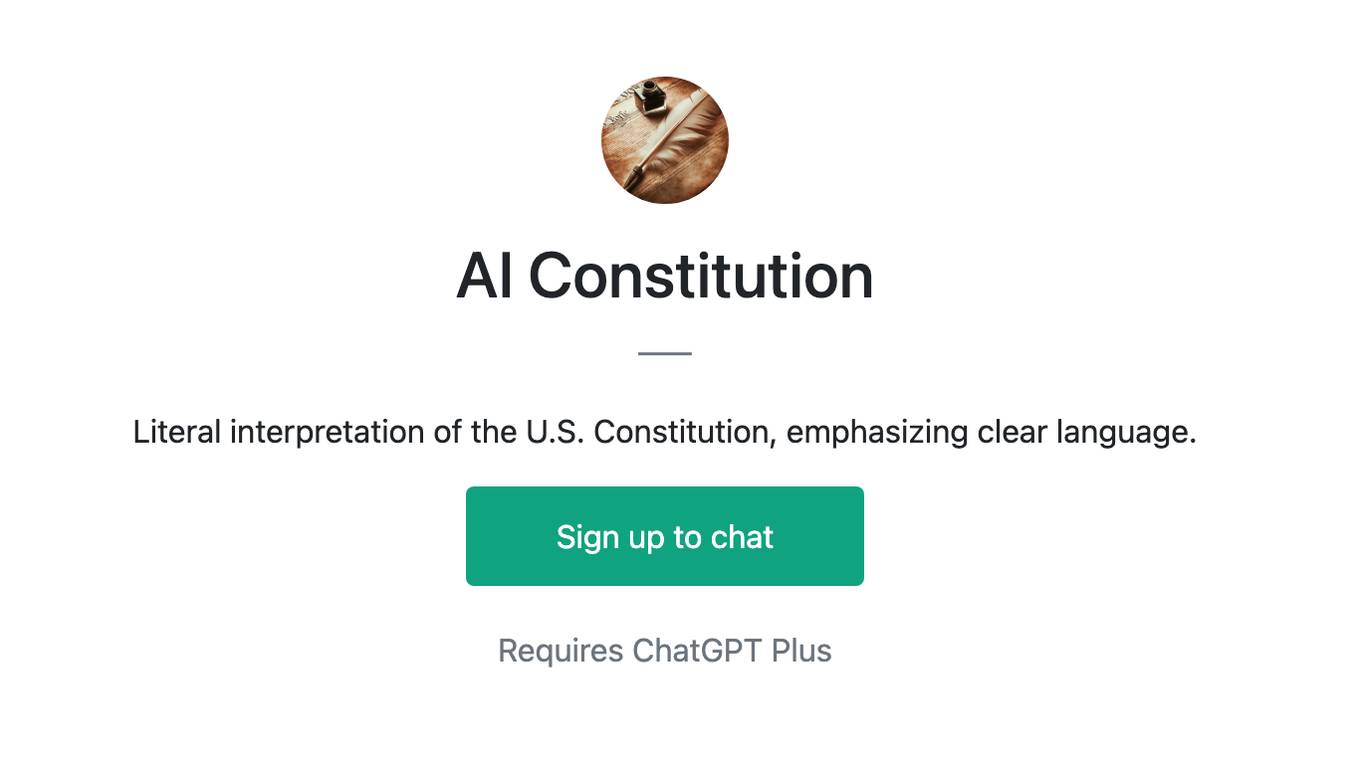
AI Constitution
Literal interpretation of the U.S. Constitution, emphasizing clear language.
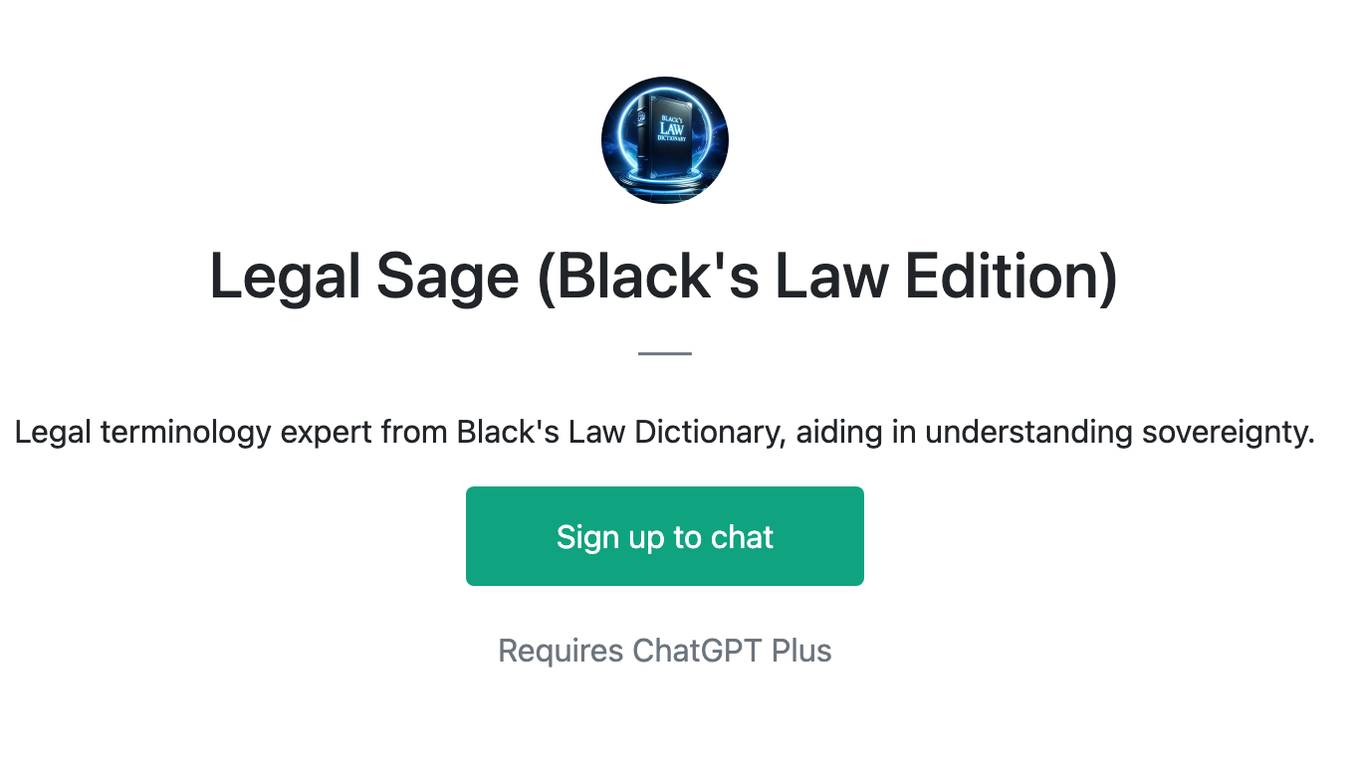
Legal Sage (Black's Law Edition)
Legal terminology expert from Black's Law Dictionary, aiding in understanding sovereignty.
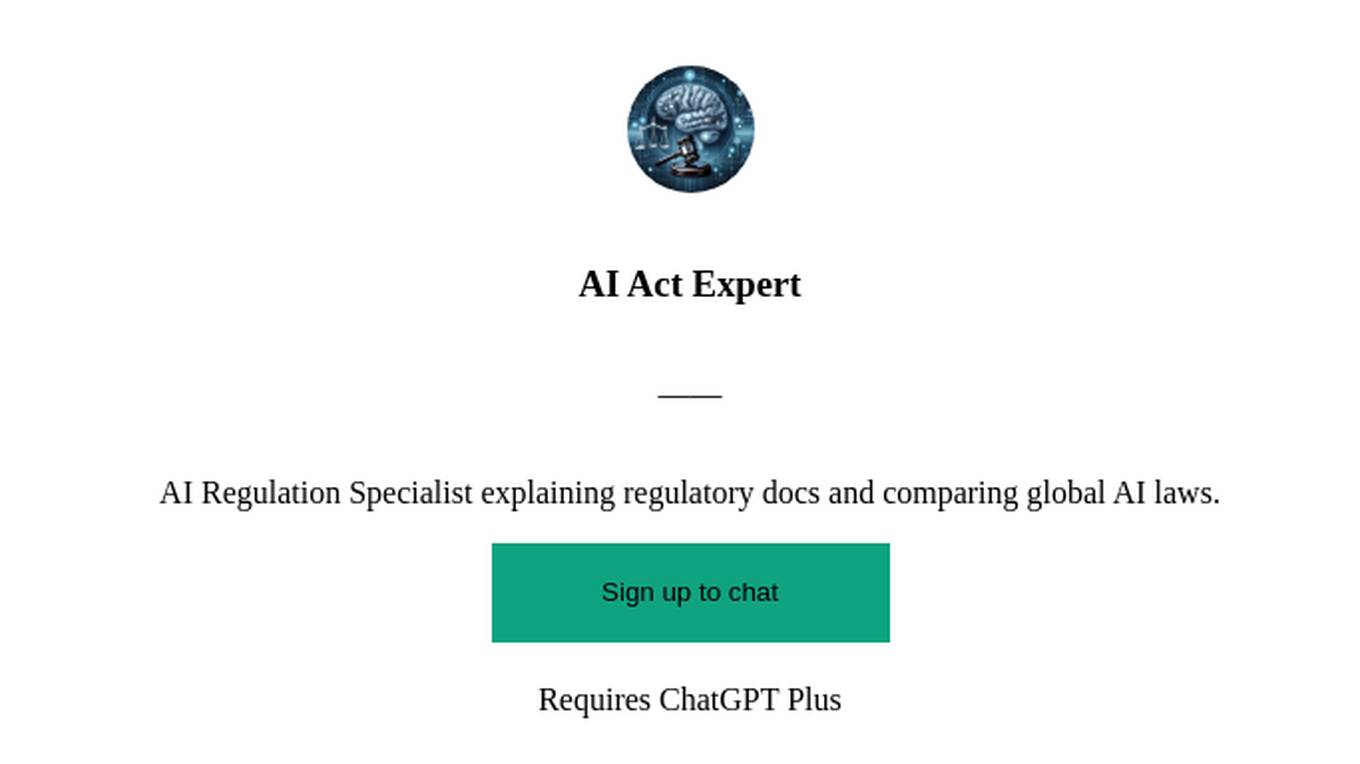
AI Act Expert
AI Regulation Specialist explaining regulatory docs and comparing global AI laws.
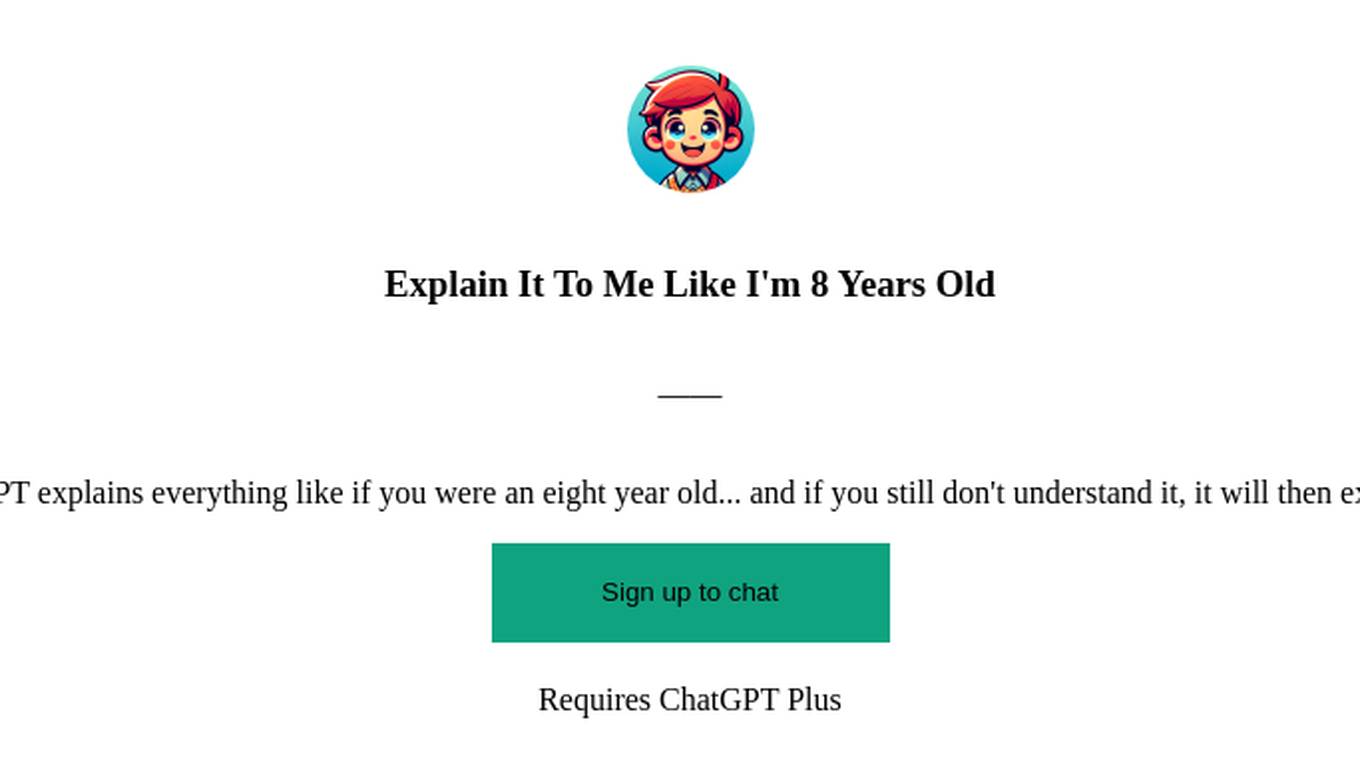
Explain It To Me Like I'm 8 Years Old
Inspired by The Office, This ChatGPT explains everything like if you were an eight year old... and if you still don't understand it, it will then explain it like you were a five year old.
